A Greek garden transports you to the sun-drenched shores of the Aegean, creating a tranquil Mediterranean oasis in your own backyard. This style is defined by a harmonious blend of natural elements, rustic charm, and classical elegance. It emphasizes simplicity, using a palette of crisp whites, vibrant blues, and earthy terracotta against a backdrop of resilient, fragrant greenery. By incorporating iconic plants like olive trees and bougainvillea, alongside features such as stone pathways and shaded pergolas, you can craft a serene escape that is both beautiful and low-maintenance, perfect for relaxing and entertaining.
1. Whitewashed Stucco Walls in a Greek Garden
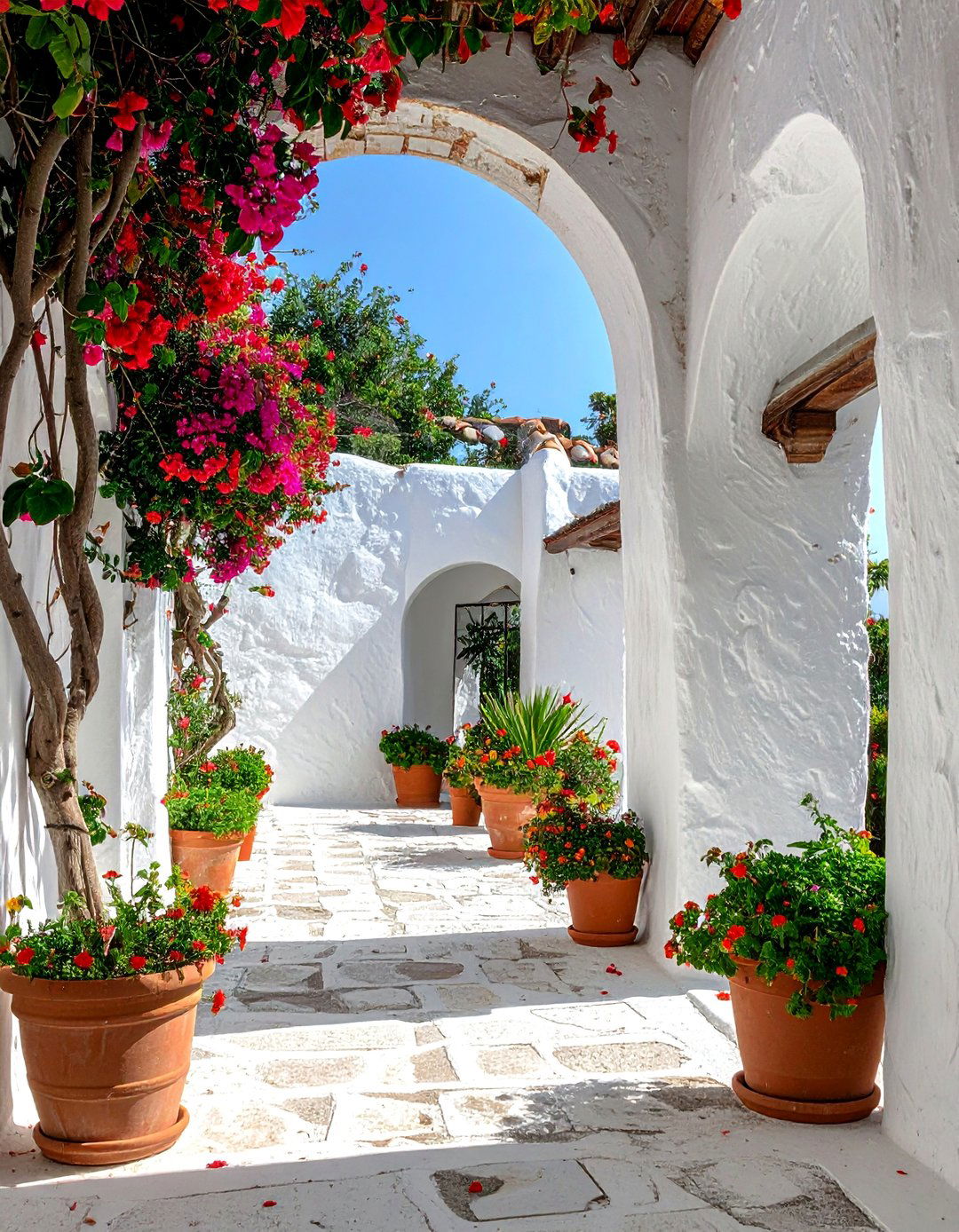
The quintessential backdrop for any Greek garden is a series of whitewashed stucco walls. These brilliant white surfaces reflect the intense Mediterranean sun, keeping the space cool while creating a stunning, high-contrast canvas for vibrant plants and blue accents. A textured finish on the walls adds rustic authenticity, mimicking the traditional architecture found on Greek islands. This simple yet powerful design choice not only defines the garden's boundaries but also amplifies the light, making the entire area feel brighter and more open. Consider adding built-in niches within the walls to display terracotta pots or lanterns, further enhancing the classic aesthetic.
2. A Greek Garden with Blue-Painted Doors and Shutters
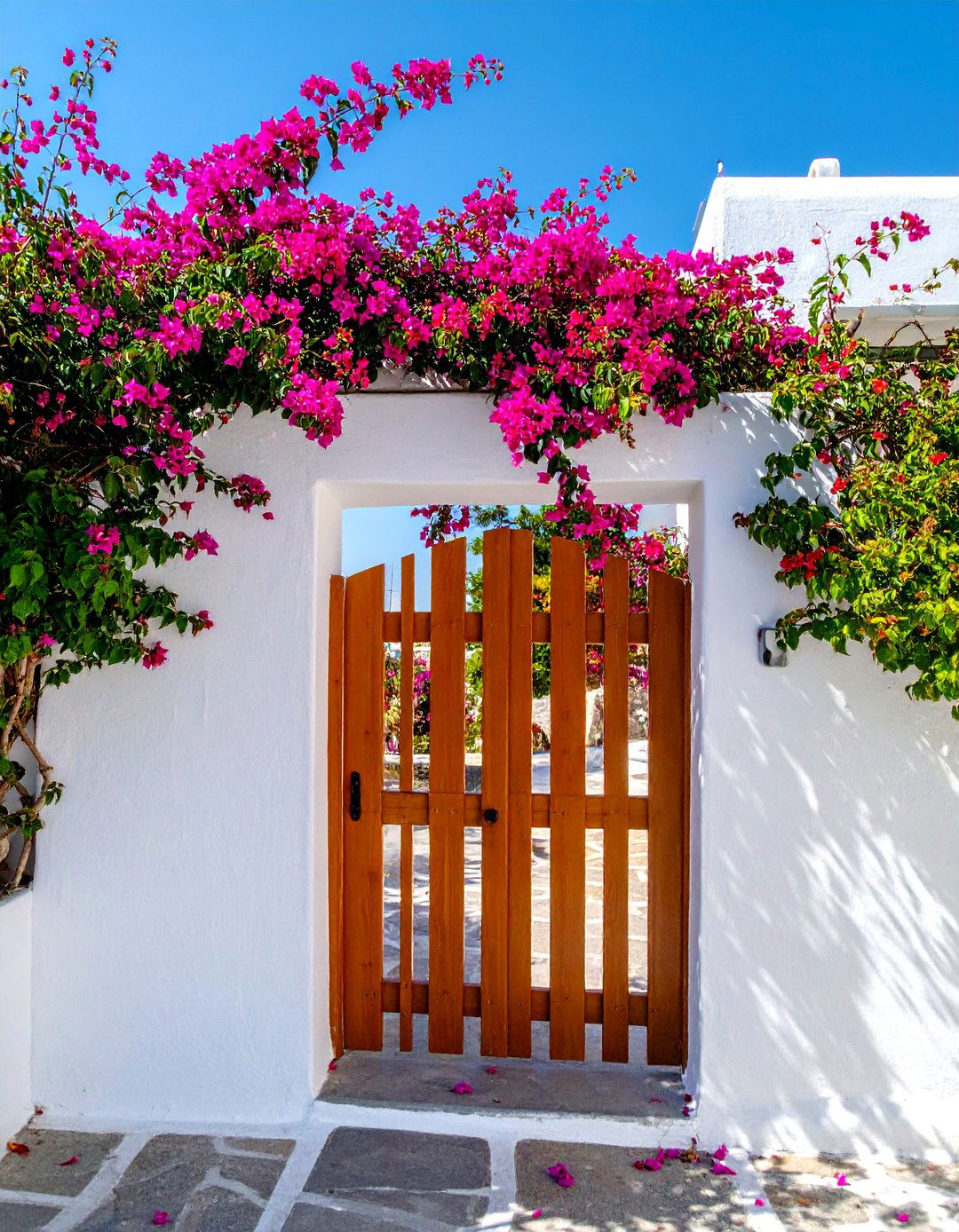
Incorporating vibrant blue-painted doors, gates, and window shutters is a hallmark of Greek garden design. This iconic shade, often referred to as "Santorini blue," evokes the color of the Aegean Sea and the sky, creating a striking contrast against whitewashed walls. Painting these architectural elements provides an immediate and authentic Mediterranean feel. This simple color pop introduces a sense of cheerful tranquility and serves as a focal point within the garden's layout. This technique beautifully frames entryways and views, inviting you into the serene space while tying the entire design together with a cohesive and recognizable color scheme.
3. Terracotta Pots and Urns in a Greek Garden
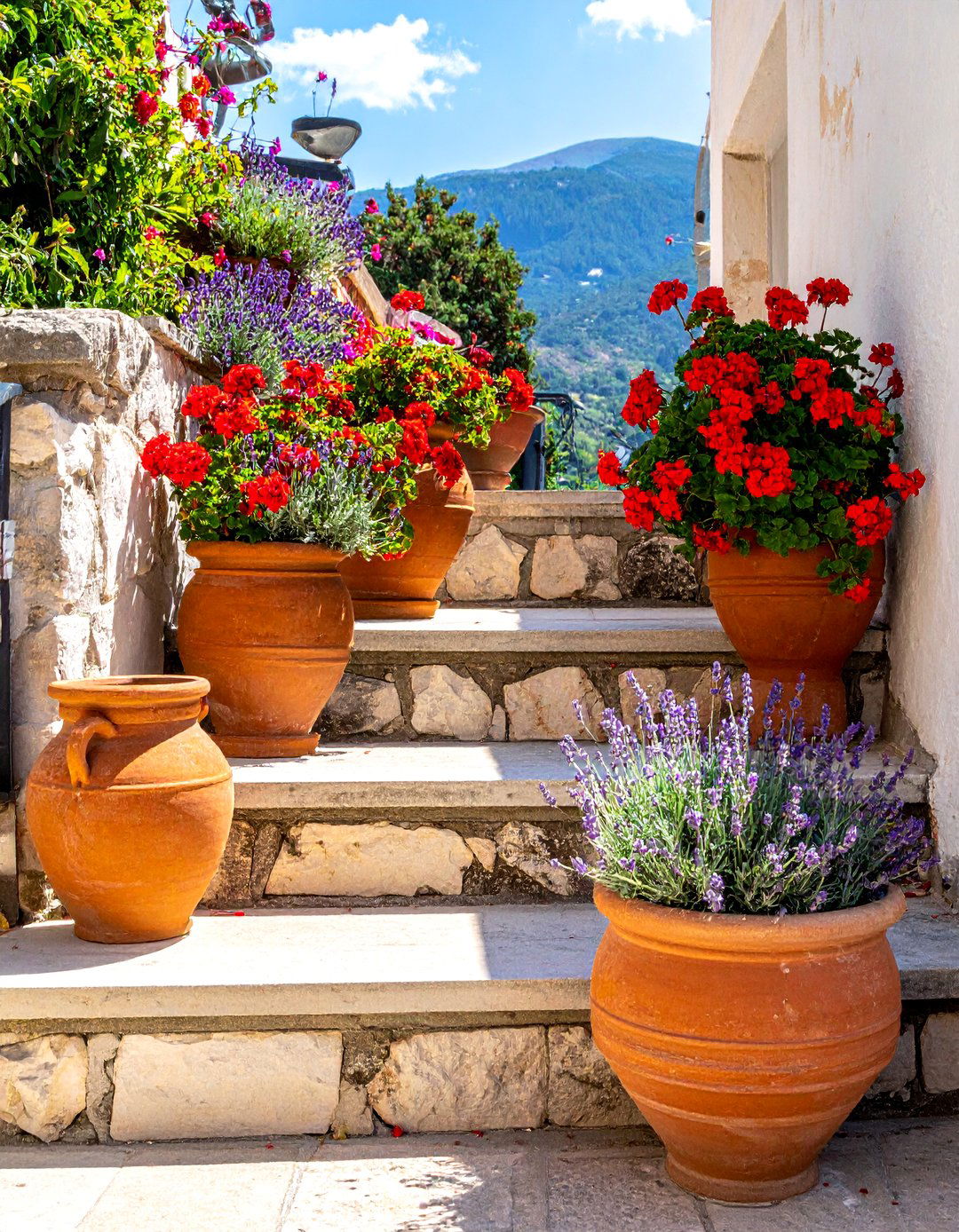
Clusters of terracotta pots and urns are essential for achieving an authentic Greek garden atmosphere. These earthy, reddish-brown containers add warmth and rustic texture, complementing the cool tones of white walls and blue accents. Grouping various sizes and shapes together creates a visually dynamic display, perfect for patios, steps, or along pathways. Fill them with classic Mediterranean plants like geraniums, lavender, or small citrus trees. The porous nature of terracotta also promotes healthy root growth by allowing air and moisture to circulate, making them a practical as well as aesthetic choice for your sun-loving plants.
4. An Olive Tree Focal Point in a Greek Garden
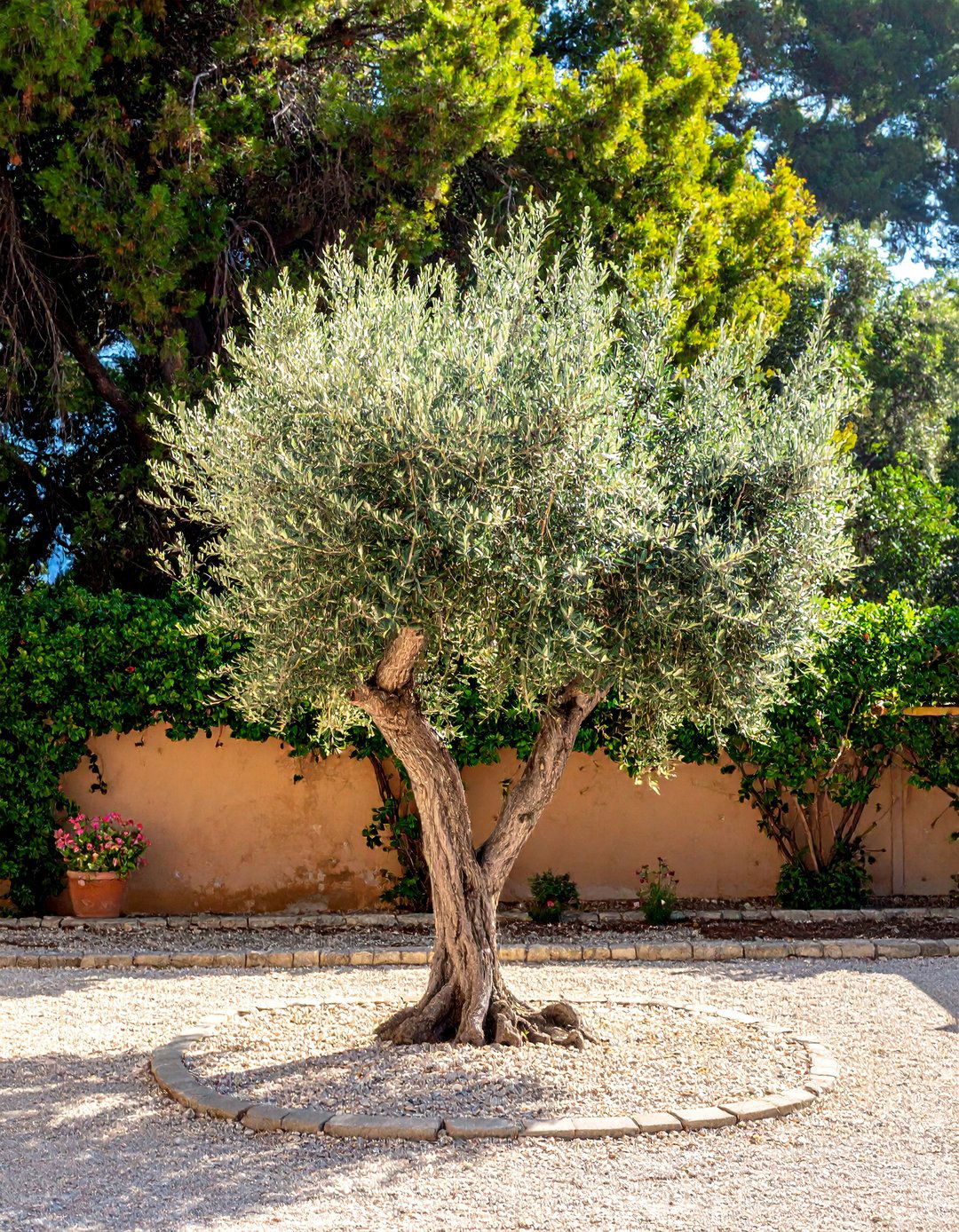
An olive tree serves as the soulful centerpiece of a classic Greek garden. With its gnarled trunk and silvery-green leaves, this ancient symbol of peace and abundance brings timeless character and structure to the landscape. Plant a mature specimen in a central location or a large terracotta pot to act as a natural sculpture. The dappled shade from its canopy provides a cool respite from the sun, creating an ideal spot for a stone bench or a small seating area. The presence of an olive tree instantly connects your garden to its Mediterranean roots, offering beauty and a sense of enduring history.
5. A Greek Garden Adorned with Bougainvillea Vines
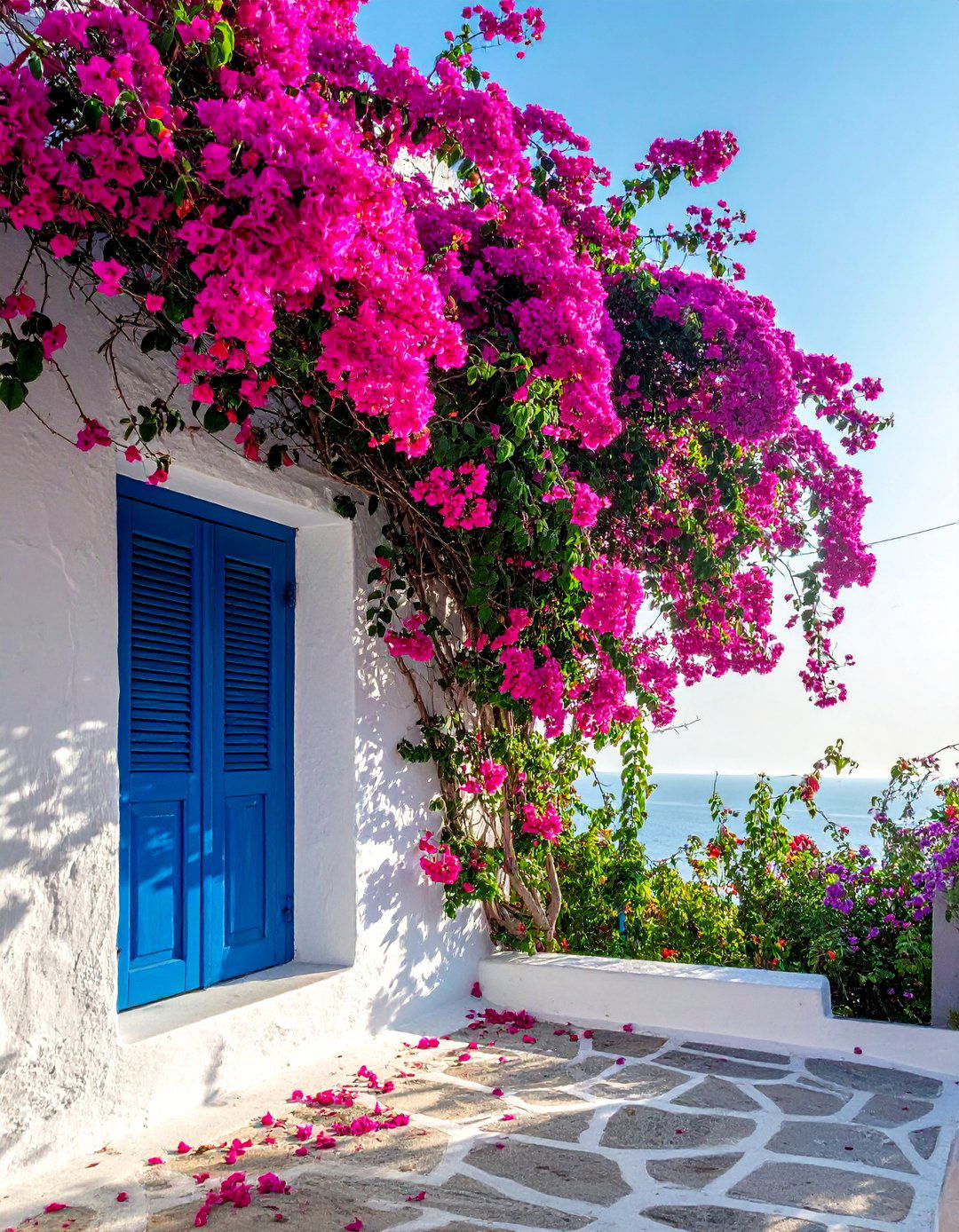
Vibrant bougainvillea vines cascading over walls, trellises, or pergolas are a spectacular feature of a Greek garden. The brilliant fuchsia, red, or orange bracts provide a dramatic explosion of color against the stark white and blue backdrop. This fast-growing, sun-loving climber thrives in warm climates and embodies the lively spirit of the Mediterranean. Training a bougainvillea to frame a doorway or cover an archway creates a breathtaking floral entrance. Its drought-tolerant nature makes it a practical choice for a low-water landscape, delivering maximum visual impact with minimal fuss while adding a touch of romantic abundance.
6. Fragrant Lavender and Rosemary Beds in a Greek Garden
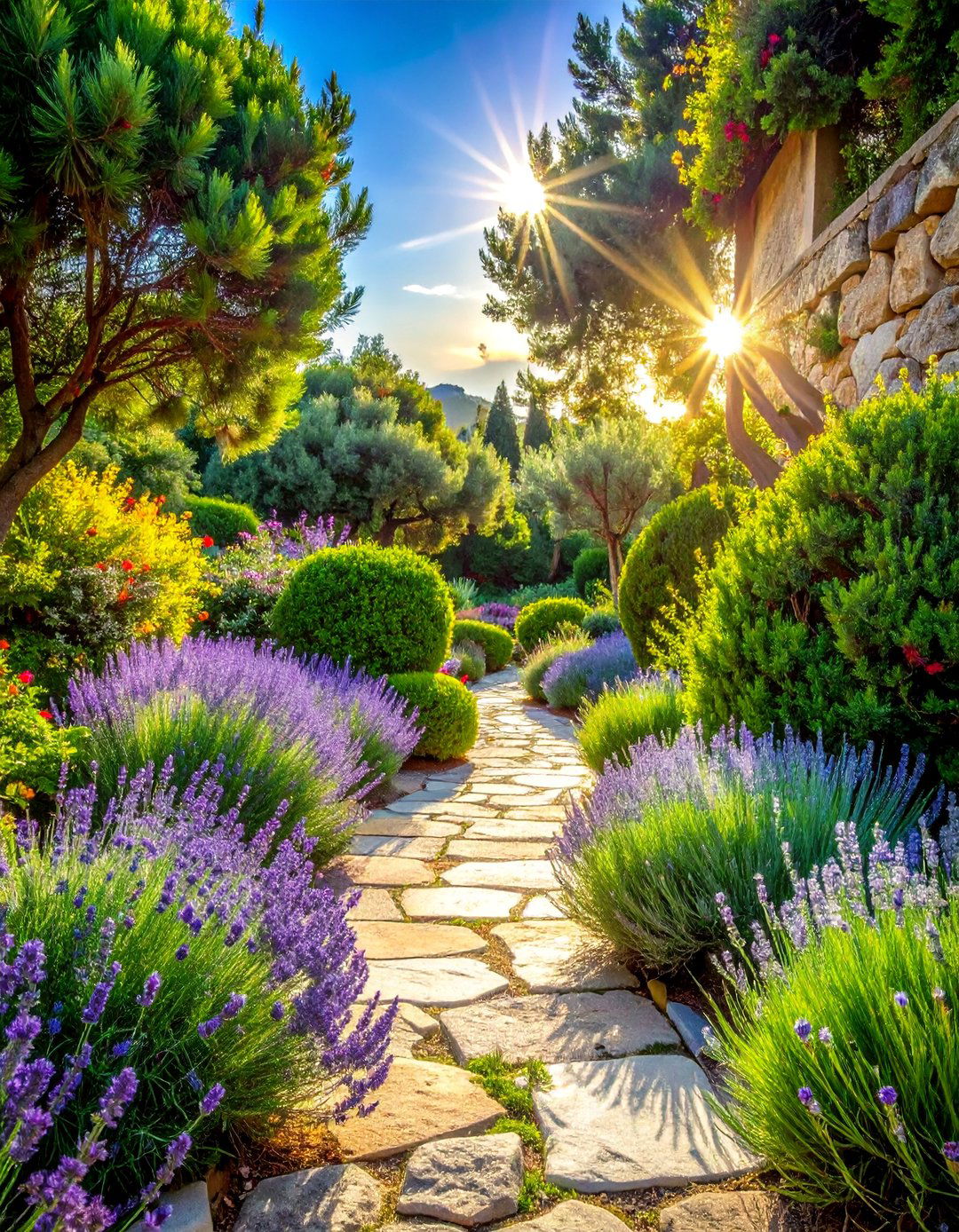
Aromatic herb beds filled with lavender and rosemary are fundamental to the sensory experience of a Greek garden. The silvery foliage and purple spikes of lavender, combined with the deep green, needle-like leaves of rosemary, create a beautiful textural contrast. Planting them along pathways or in large drifts releases their calming, rustic fragrance as you brush past. Both herbs are drought-tolerant and thrive in full sun, making them perfectly suited for the Mediterranean aesthetic. This pairing not only adds color and scent but also attracts pollinators, bringing the garden to life with the gentle hum of bees.
7. Natural Stone Pathways in a Greek Garden
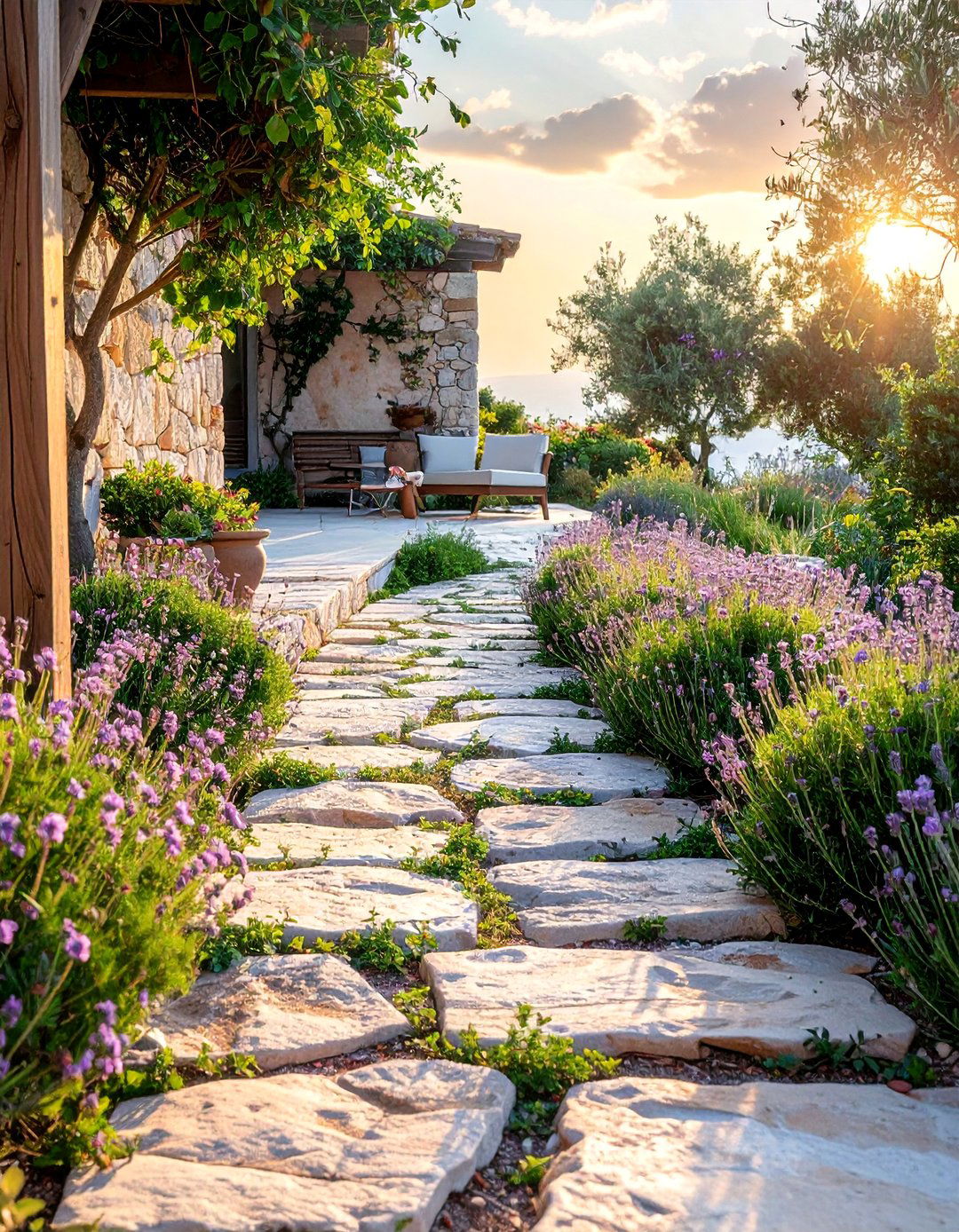
Winding stone pathways are essential for navigating a Greek garden and adding rustic, organic charm. Using locally sourced, irregularly shaped flagstones or light-colored gravel creates a natural and informal feel, encouraging leisurely strolls through the space. Set the stones with wider gaps and allow small, hardy plants like creeping thyme to grow between them, softening the edges and releasing a pleasant aroma when stepped on. These paths guide the eye through the landscape, connecting different zones like seating areas and water features, while their texture and earthy tones ground the entire design in a natural aesthetic.
8. A Grapevine-Covered Pergola in a Greek Garden
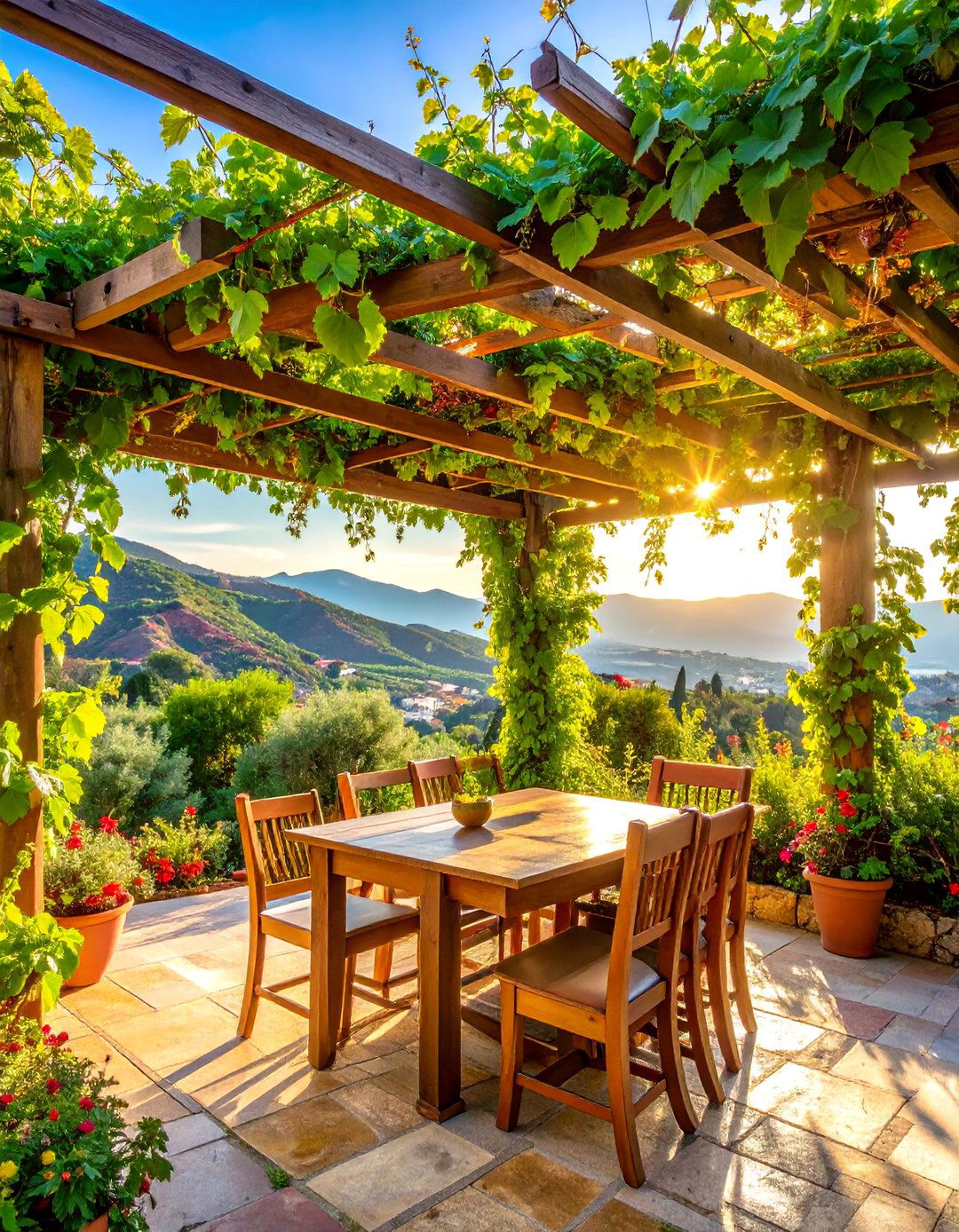
A wooden pergola covered with lush grapevines provides a perfect shaded retreat in a Greek garden. This classic structure offers a cool, dappled sanctuary from the midday sun, creating an ideal spot for an outdoor dining table or comfortable lounge seating. As the grapevines mature, they form a dense, leafy canopy that not only provides shade but also yields fruit in late summer. The sight of hanging grape clusters adds an element of rustic productivity and abundance. The interplay of light filtering through the leaves creates a tranquil and romantic atmosphere, making it a central hub for relaxation and socializing.
9. A Simple Stone Water Feature in a Greek Garden
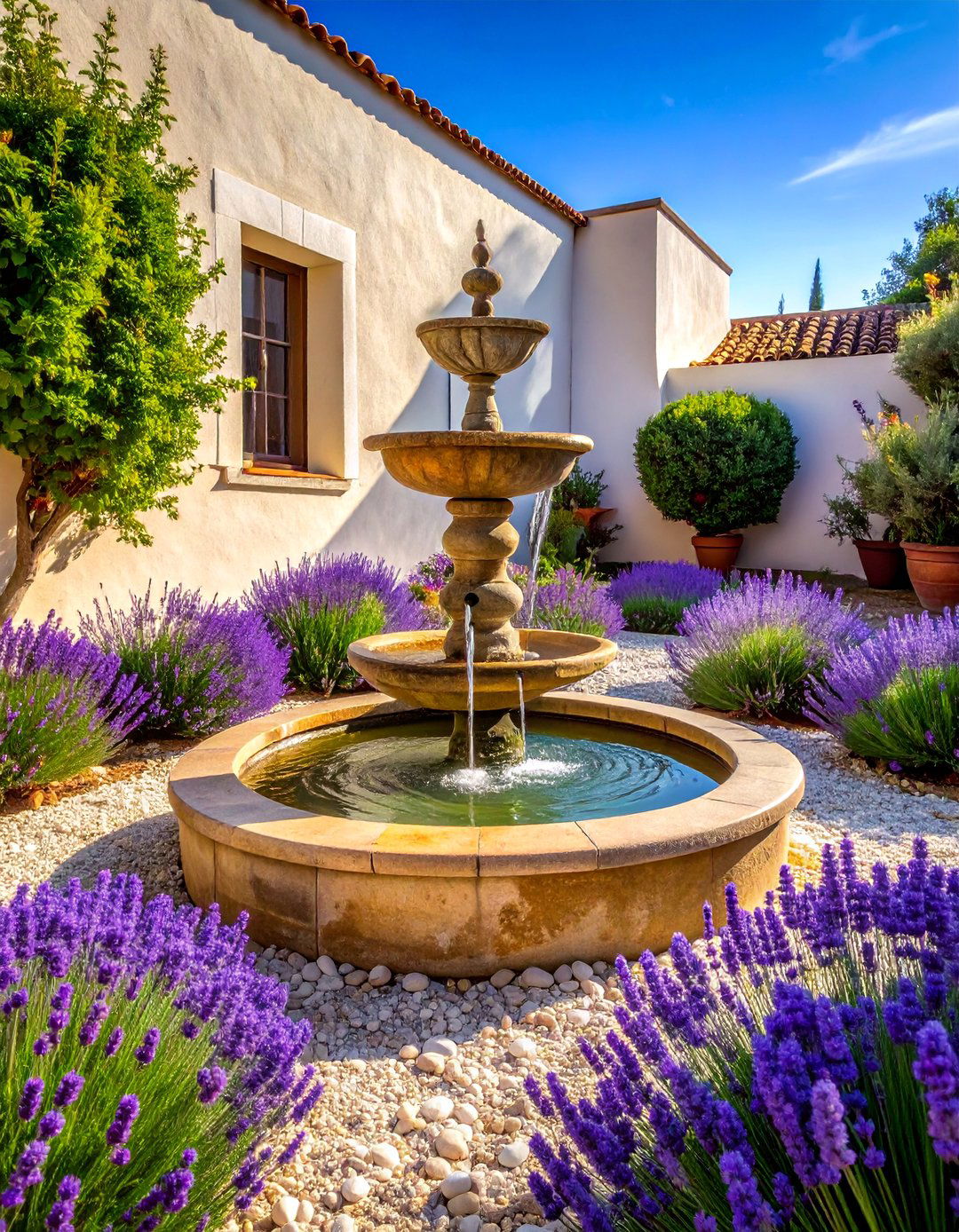
The gentle sound of trickling water from a simple stone feature introduces a sense of tranquility and coolness to a Greek garden. Instead of ornate fountains, opt for a minimalist design like a small, tiered stone fountain, a spout emerging from a whitewashed wall into a basin, or a simple bubbling urn. The feature should blend seamlessly with the natural materials of the garden. This element not only provides a soothing auditory backdrop but also attracts birds, adding life and movement to the space. It acts as a cooling focal point, offering a refreshing counterpoint to the sun-baked stones and walls.
10. Ancient Amphorae as Garden Decor
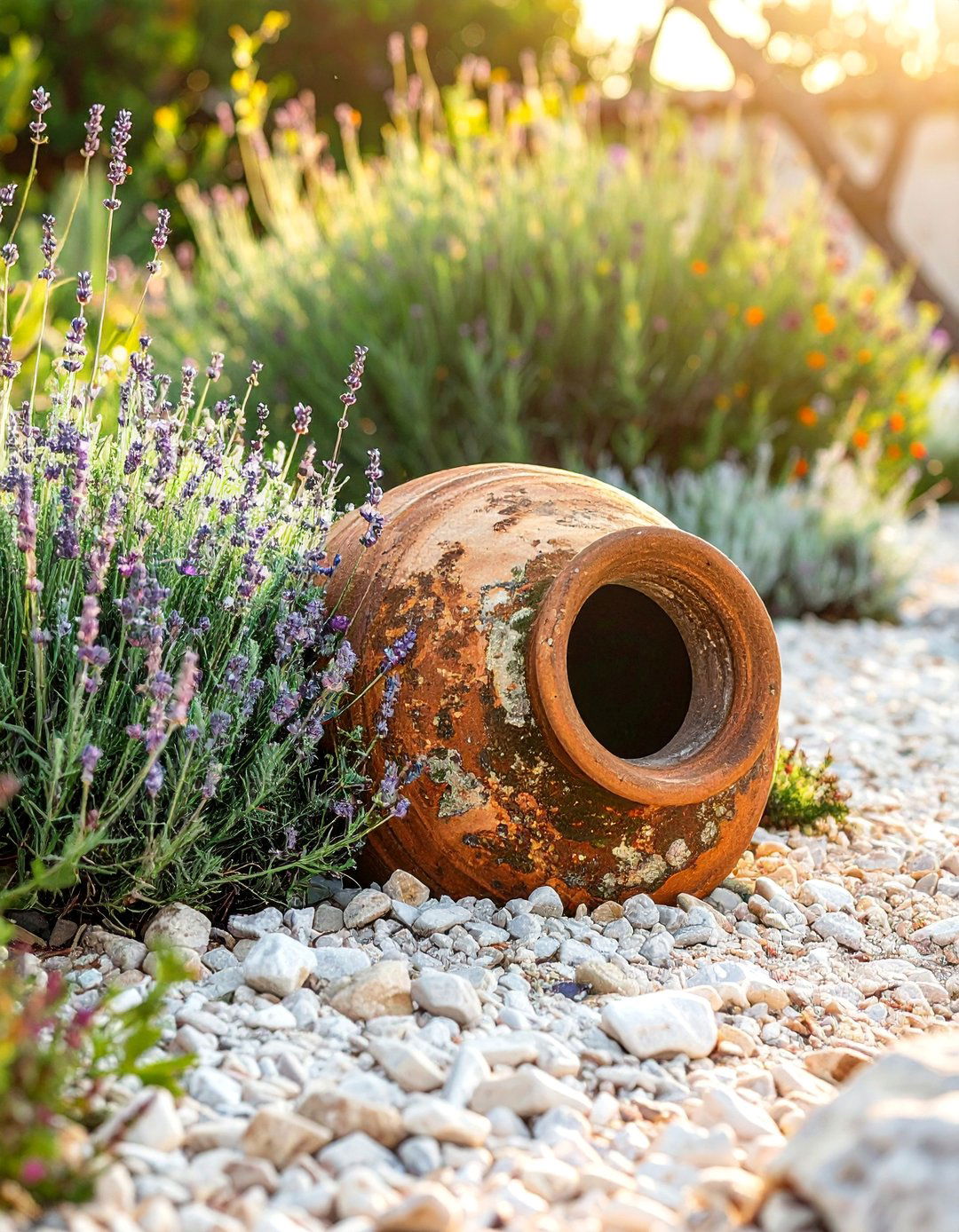
Placing one or two large, rustic amphorae—ancient-style clay jars—as decorative accents lends an authentic, archaeological touch to a Greek garden. These vessels, traditionally used for storing wine or olive oil, serve as powerful sculptural elements. Position an amphora at the end of a pathway, nestled among herbs, or partially buried in a gravel bed as if recently unearthed. Left empty, they evoke a sense of history and timelessness. You can also use them as unique planters for trailing plants like ivy or succulents, adding a splash of green to their weathered, earthy forms.
11. An Aromatic Greek Garden Herb Patch
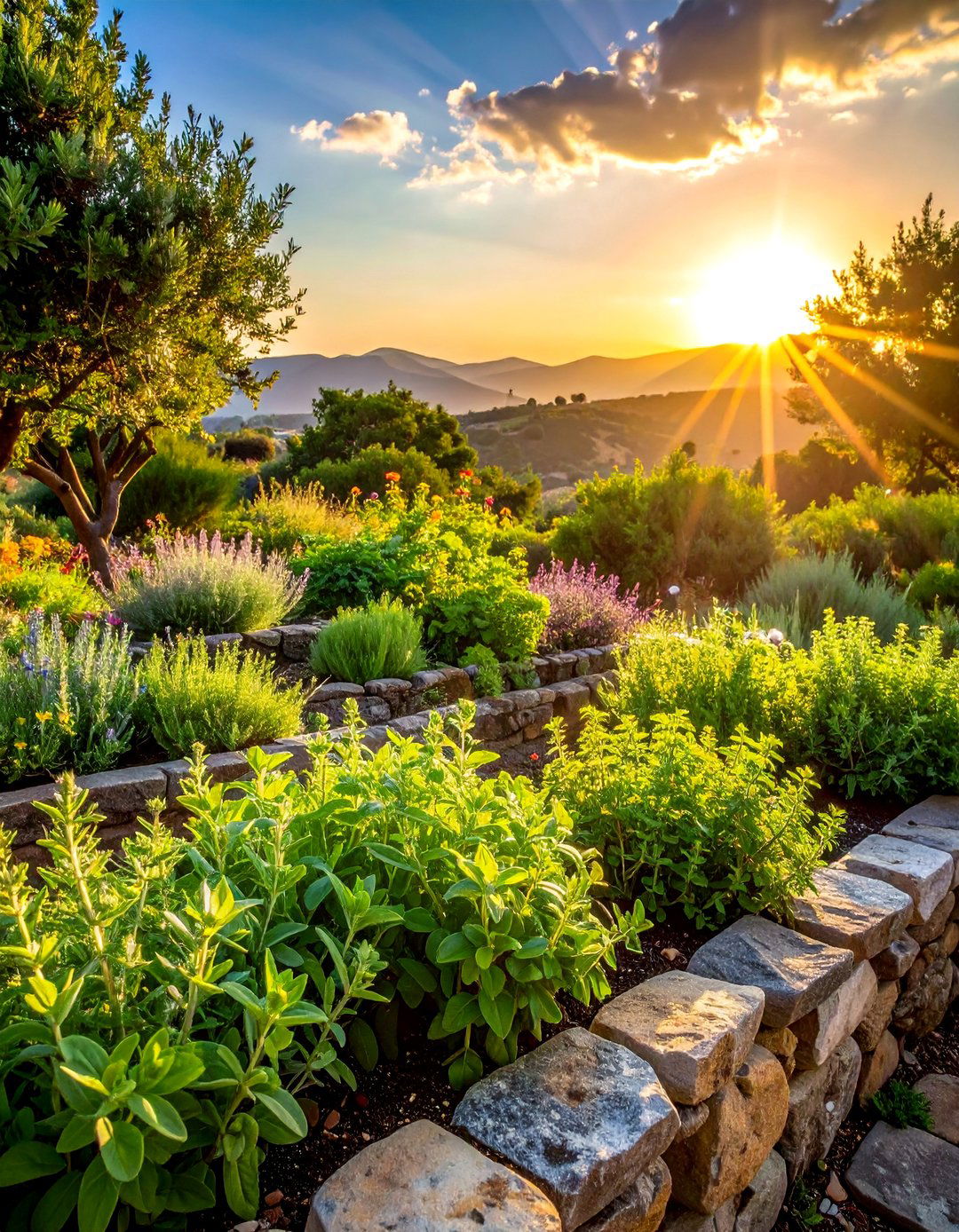
Creating a dedicated patch for essential Greek herbs like oregano, thyme, and mint enriches the garden with fragrance and culinary potential. Plant these hardy herbs in a sunny, well-drained spot, perhaps in raised stone beds or clustered terracotta pots for easy access from the kitchen. The varied textures and shades of green add subtle beauty, while their robust scents fill the air, especially on warm days. This practical feature connects the garden to the heart of Mediterranean cuisine, providing fresh ingredients for cooking while attracting beneficial insects and contributing to the overall rustic, sensory experience of the space.
12. A Greek Garden with Potted Citrus Trees
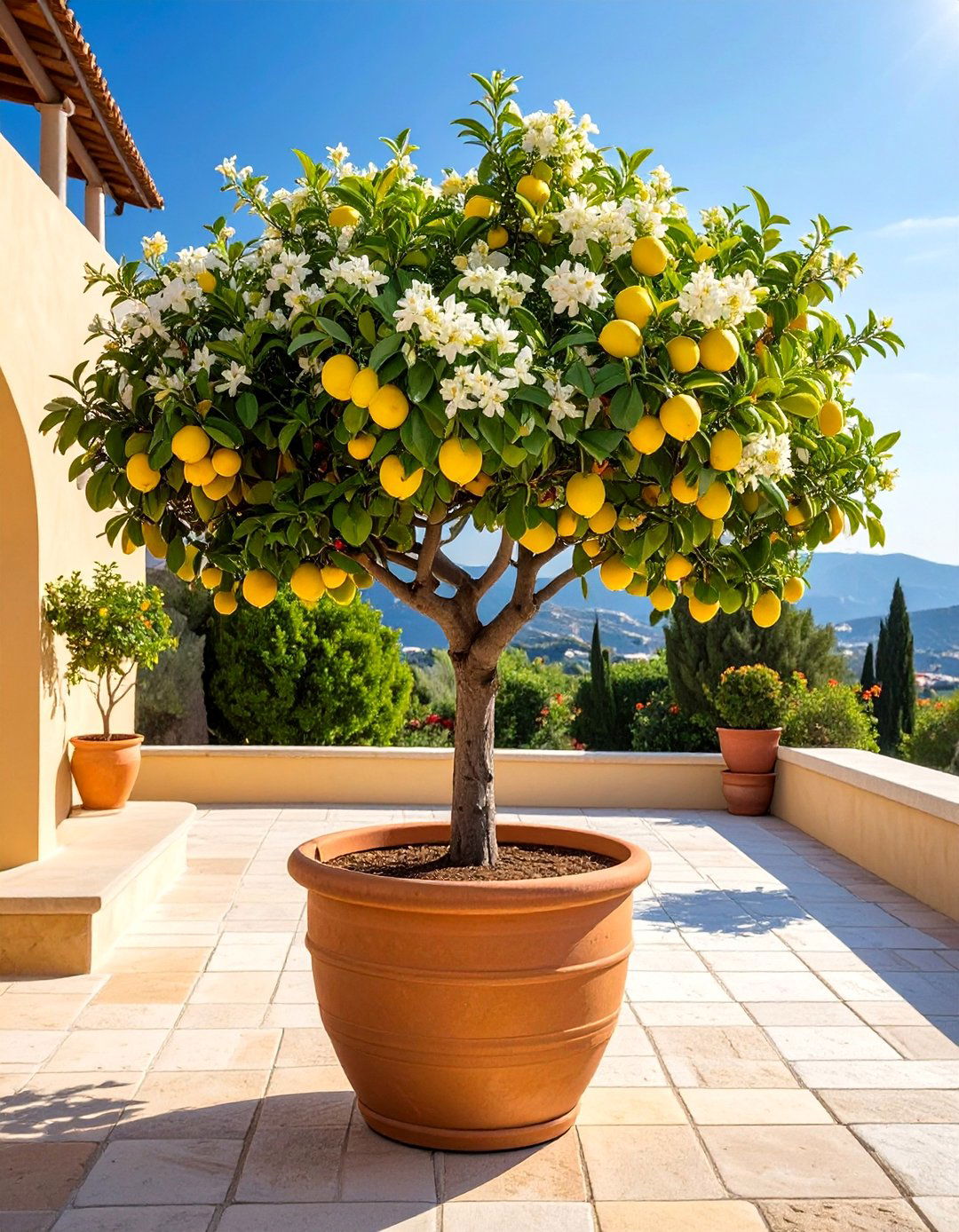
Potted lemon or orange trees bring a touch of the Mediterranean grove to your Greek garden. Their glossy dark green leaves, fragrant white blossoms, and vibrant yellow or orange fruit provide year-round interest and a delightful citrus scent. Planting them in large terracotta containers allows you to position them strategically on a sunny patio or flank an entryway for a symmetrical look. For colder climates, this method also makes it easy to move the trees to a protected location during winter. These compact trees offer color, fragrance, and the joy of harvesting your own fresh fruit.
13. A Low-Maintenance Gravel Courtyard
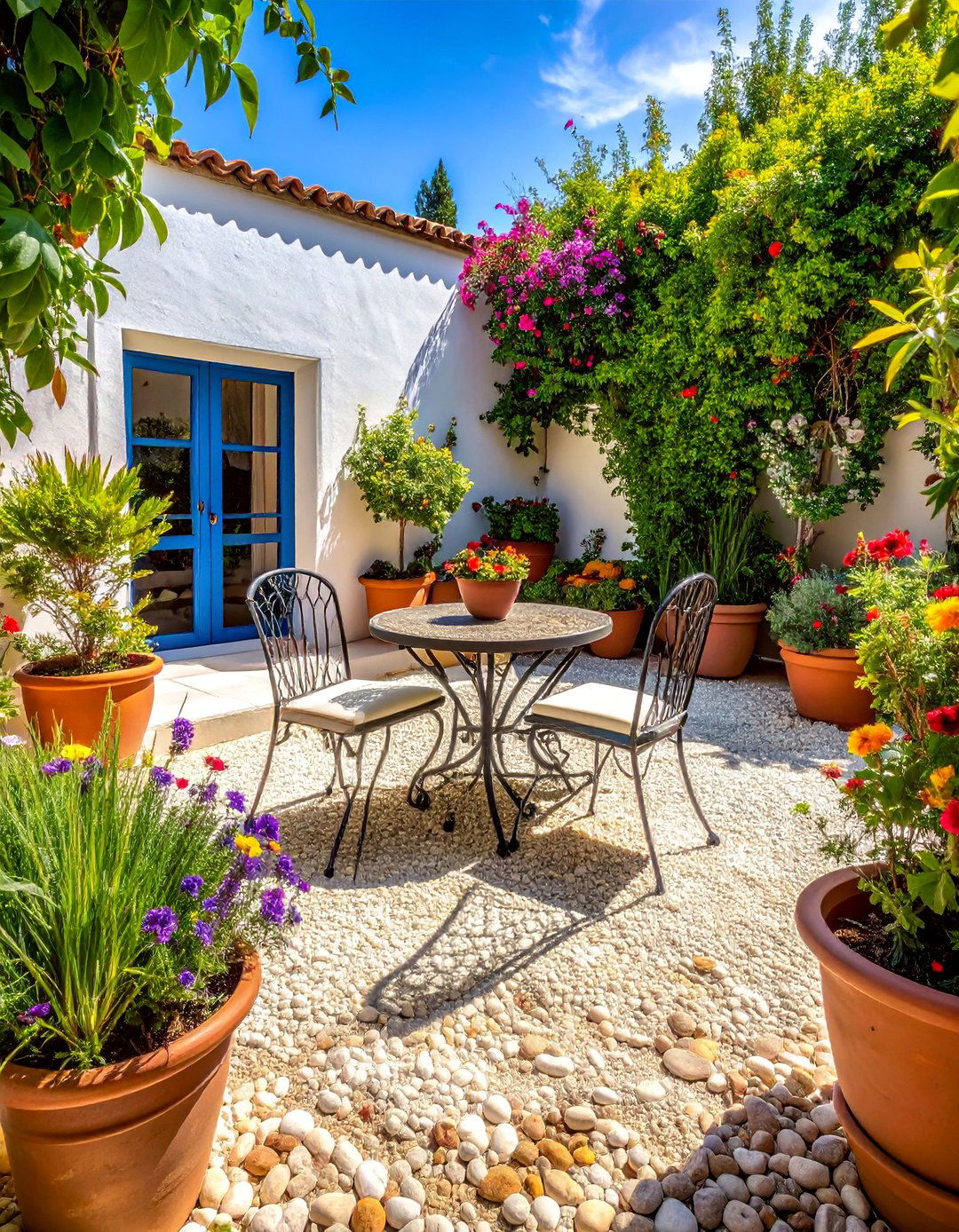
A gravel courtyard or patio is a practical and authentic flooring choice for a Greek garden. Using pea gravel or crushed limestone in light, sun-reflecting colors creates a crisp, clean surface that crunches satisfyingly underfoot. This low-maintenance option is excellent for drainage and helps suppress weeds. It provides a perfect neutral base for arranging terracotta pots, adding a simple dining set, or placing a rustic stone bench. The texture and color of the gravel complement the surrounding plants and whitewashed walls, tying the entire design together with an effortlessly rustic and functional foundation perfect for a sun-drenched space.
14. Integrated Stone Benches in a Greek Garden
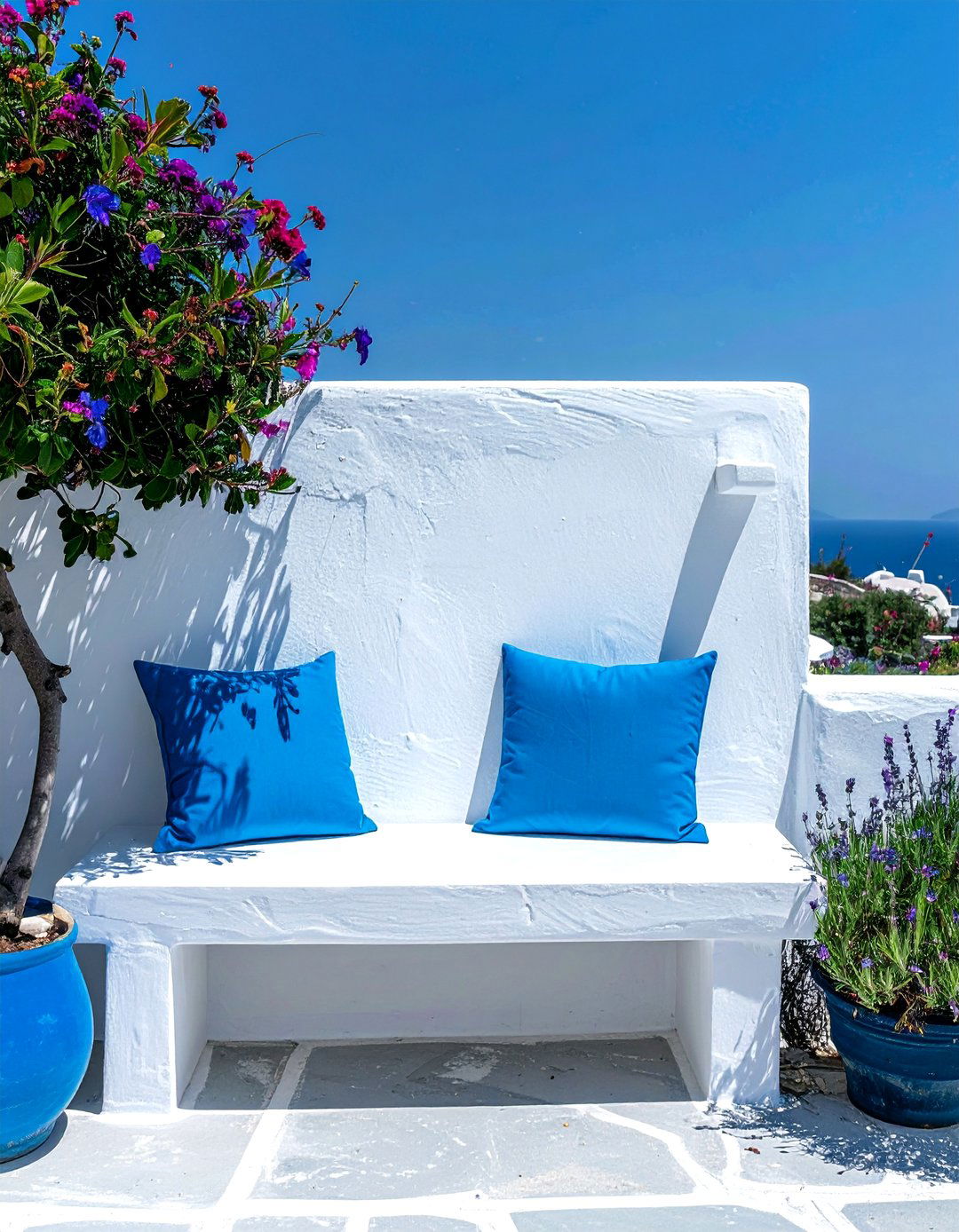
Built-in stone or rendered stucco benches provide durable, seamless seating that enhances the architectural feel of a Greek garden. Construct them as part of a low retaining wall or against the side of the house, often painted white to match the surrounding structures. Topped with simple blue cushions, these benches offer a permanent and comfortable spot to relax and enjoy the view. Their clean lines and solid form contribute to the garden's rustic, minimalist aesthetic. This integrated seating saves space and feels like an organic part of the landscape, creating a cohesive and inviting area for quiet contemplation or social gatherings.
15. The Use of Classical Statuary in a Greek Garden
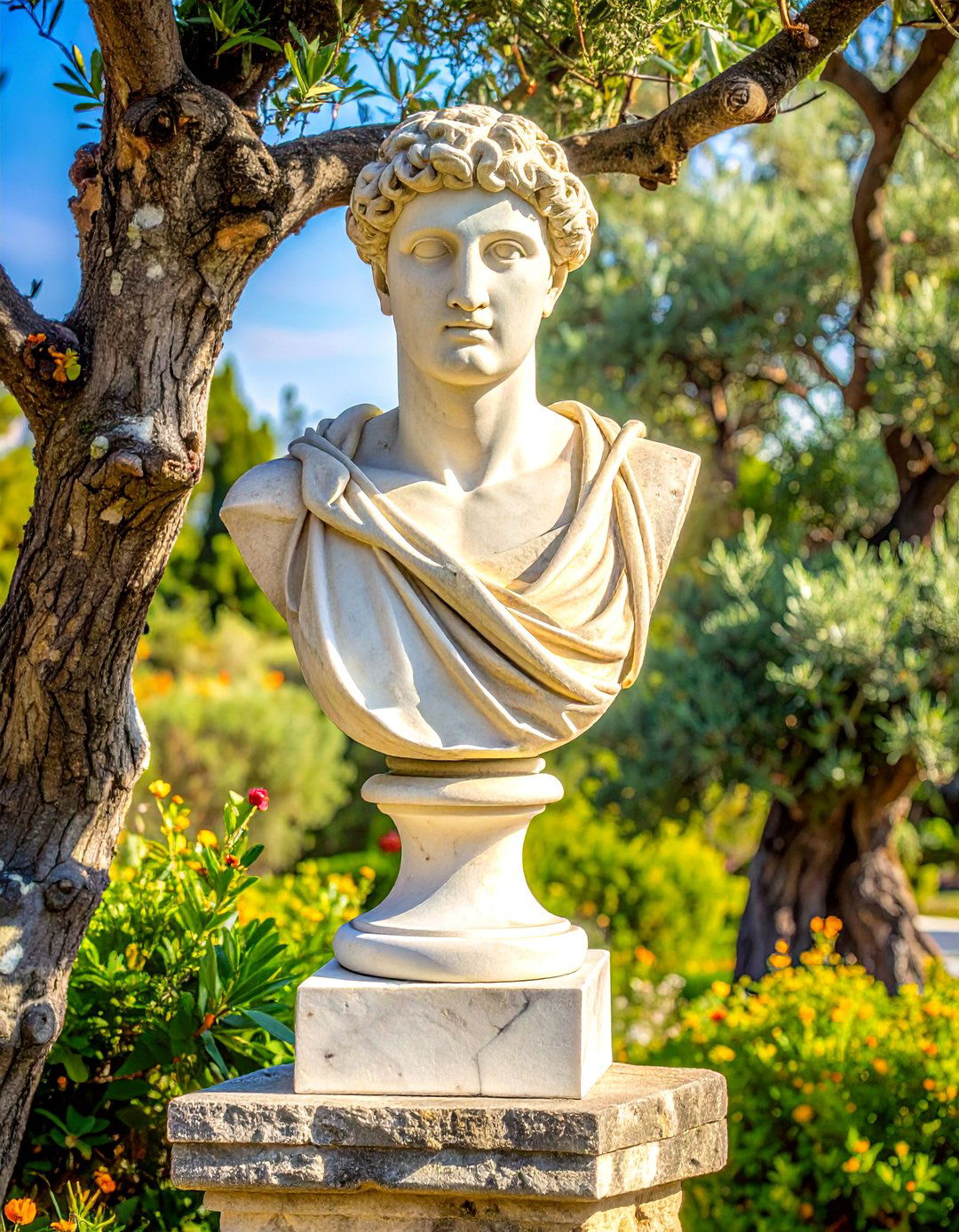
Tastefully placed classical statuary evokes the ancient history and artistic heritage central to Greek culture. A weathered bust, a small, elegant figure, or a simple column fragment can serve as a sophisticated focal point in a Greek garden. Avoid overly ornate pieces and opt for simple forms with a time-worn patina. Nestled among olive foliage or at the end of a path, a statue adds a sense of myth and timelessness. This decorative element connects the garden to its Hellenic roots, providing a touch of formal elegance that contrasts beautifully with the rustic simplicity of the surrounding plants and materials.
16. Raised Stone Garden Beds
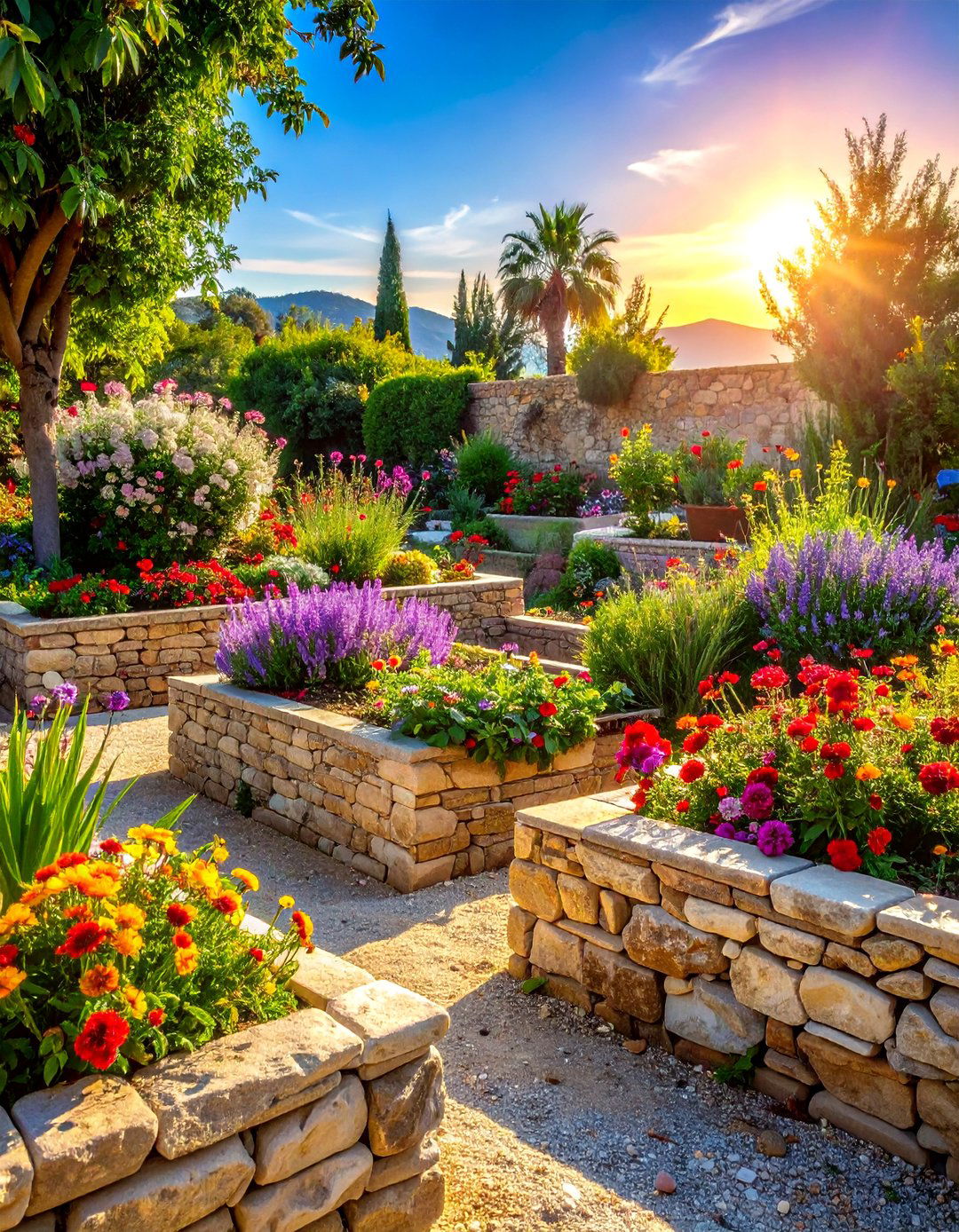
Building raised garden beds with natural, light-colored stone adds structure and dimension to a Greek garden layout. These beds are ideal for creating designated planting areas for herbs, vegetables, or flowering perennials like geraniums. The stone walls of the beds tie in with other hardscaping elements like pathways and patios, creating a cohesive look. Elevating the planting level also improves drainage—a crucial factor for many Mediterranean plants—and makes gardening tasks more accessible. This organized approach brings a sense of intentional design to the rustic setting, beautifully framing the plants and highlighting their textures and colors.
17. A Central Courtyard Greek Garden Design
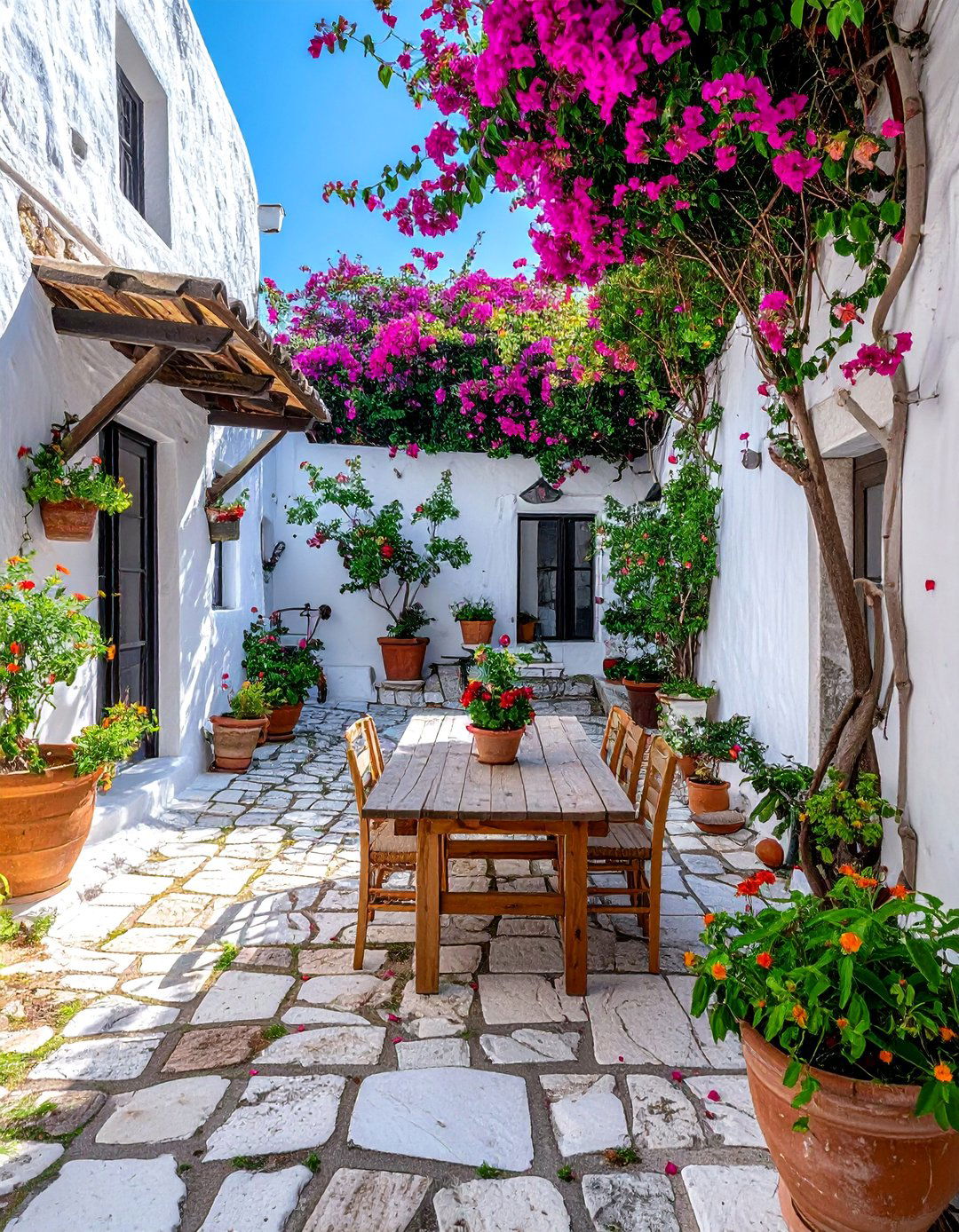
Designing your Greek garden around a central courtyard, or 'avli,' creates a sheltered and intimate outdoor living space. This enclosed area, often paved with stone or gravel, becomes the heart of the garden, connecting different parts of the home. Use this space for an outdoor dining set under a pergola, surrounded by large terracotta pots filled with vibrant flowers and herbs. The surrounding walls provide privacy and a backdrop for climbing plants like jasmine or bougainvillea. This traditional layout offers protection from wind and intense sun, creating a tranquil, secluded haven for relaxation and entertainment.
18. Drought-Tolerant Succulents and Agaves
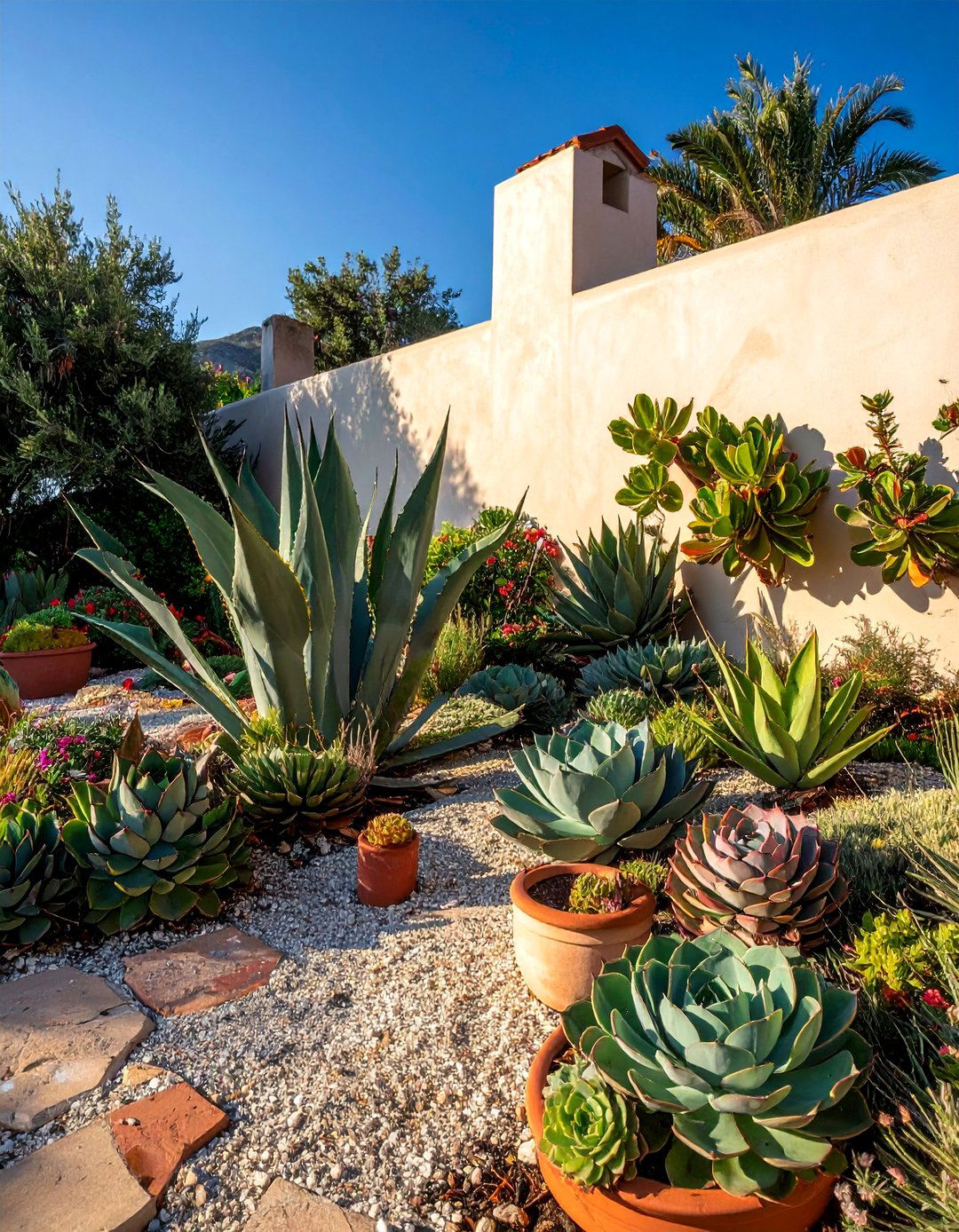
Incorporating drought-tolerant succulents and agaves adds sculptural form and water-wise resilience to a Greek garden. The bold, architectural shapes of agaves or the intricate rosettes of echeverias provide a stunning contrast to the softer foliage of herbs like lavender and rosemary. Plant them in gravel beds or shallow terracotta bowls where their unique forms can be appreciated. These plants thrive in the sun and heat with minimal water, making them a perfect fit for the Mediterranean climate aesthetic. Their silvery-blue and green tones complement the garden's color palette while adding a touch of exotic, low-maintenance beauty.
19. Climbing Roses on a Greek Garden Wall
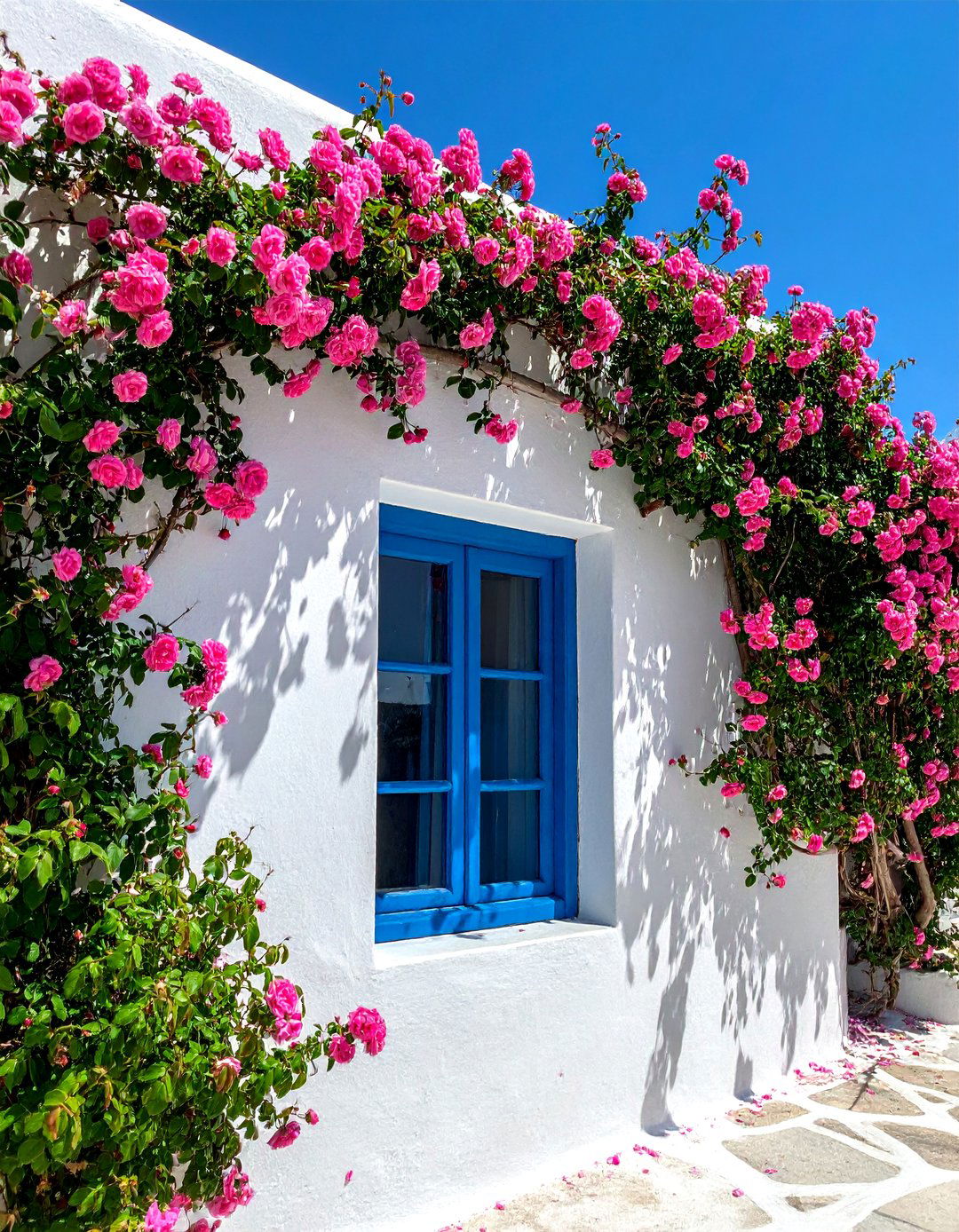
Training climbing roses to grow up a sun-drenched, whitewashed wall adds a layer of romantic charm to a Greek garden. Choose hardy, fragrant varieties with simple, elegant blooms in shades of white, pink, or soft yellow. The contrast between the delicate flowers and the rustic stucco wall creates a picturesque scene reminiscent of a quaint island village. Climbing roses can frame a window or doorway, softening the hard architectural lines and infusing the space with classic beauty and a gentle perfume. This feature combines the wildness of nature with the structured elegance of the garden design.
20. Geraniums and Agapanthus for Color
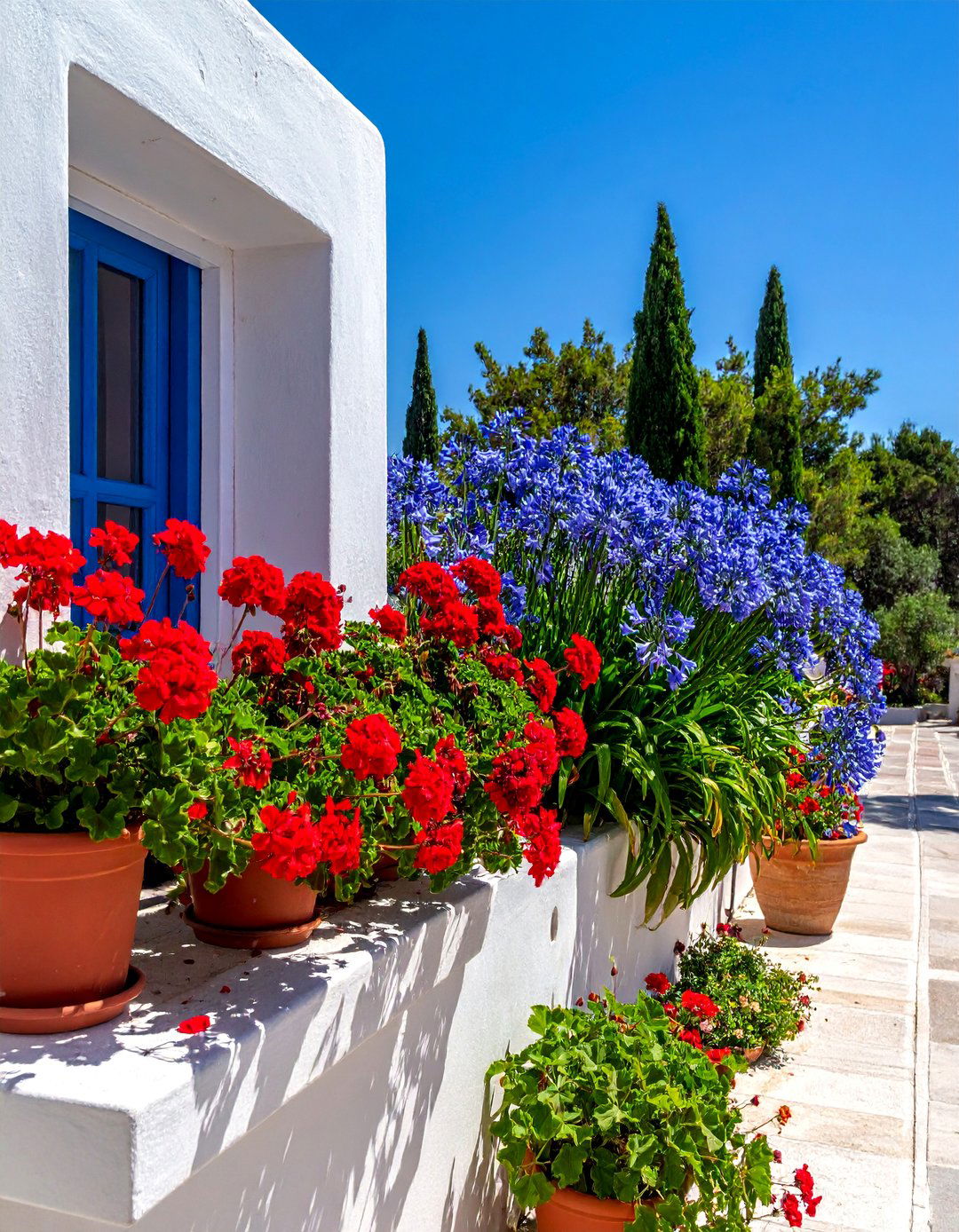
Mass plantings of vibrant red geraniums and the striking blue or white globes of agapanthus provide bold, long-lasting color in a Greek garden. Geraniums are iconic Mediterranean plants, spilling profusely from terracotta pots, window boxes, and stone troughs with their cheerful blooms. Agapanthus, with its tall, elegant stems and spherical flower heads, adds vertical interest and a touch of cool blue that echoes the painted accents of the garden. Both plants are sun-loving and relatively drought-tolerant, delivering a high-impact display of color from spring through summer with minimal care, perfectly capturing the lively spirit of the region.
21. A Greek Garden with Mosaic Tile Details
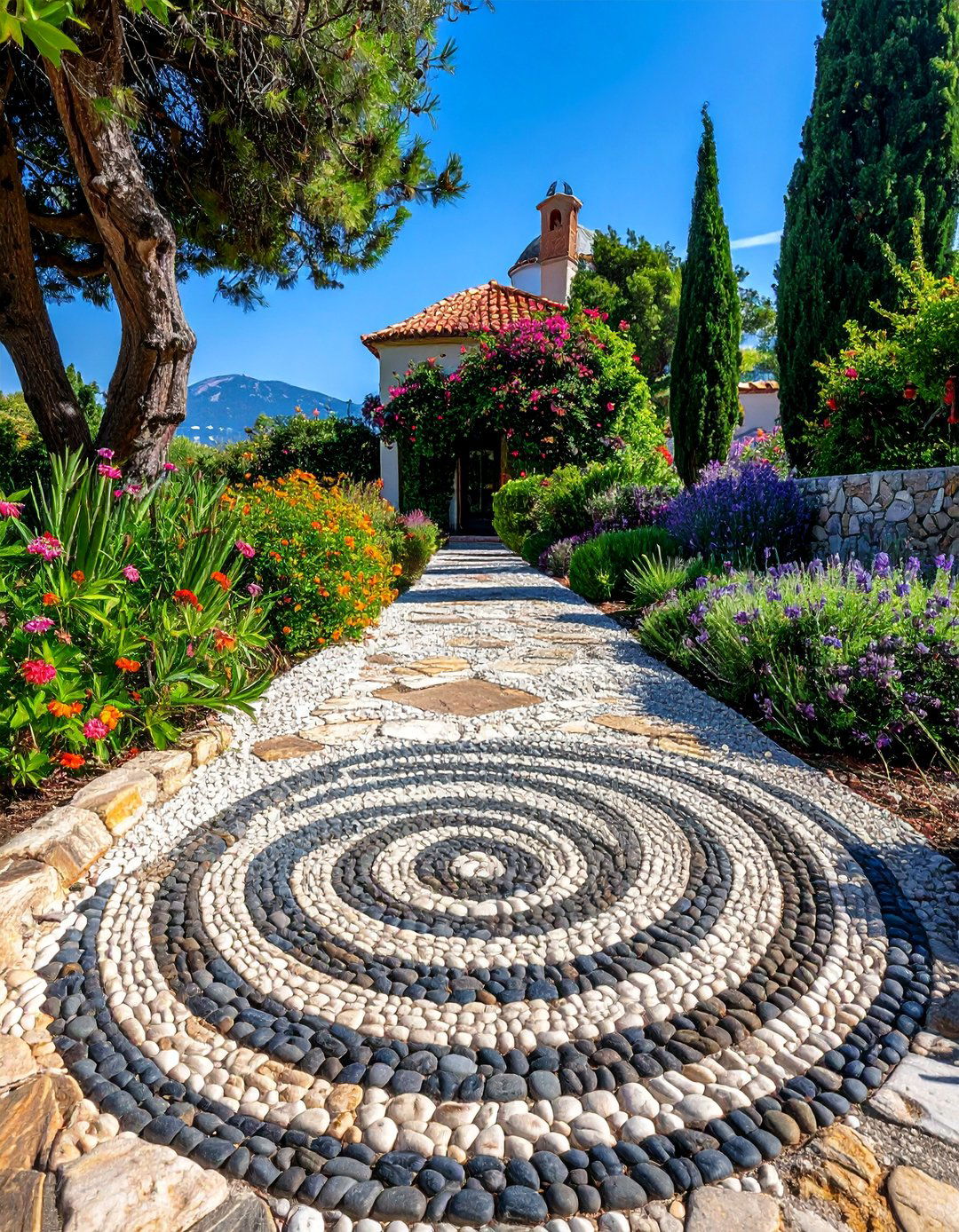
Adding mosaic tile details introduces artistry and a touch of intricate beauty to your Greek garden. Incorporate a small pebble mosaic on a pathway, create a decorative tiled tabletop, or embed colorful ceramic fragments into a stucco wall or bench. These designs often feature classic Greek motifs like spirals, waves, or simple geometric patterns. Using a color palette of blues, whites, and earthy tones reinforces the Mediterranean theme. This handcrafted element adds a unique, personal touch and a sense of history, transforming a simple surface into a captivating work of art that catches the eye and tells a story.
22. An Outdoor Kitchen Area
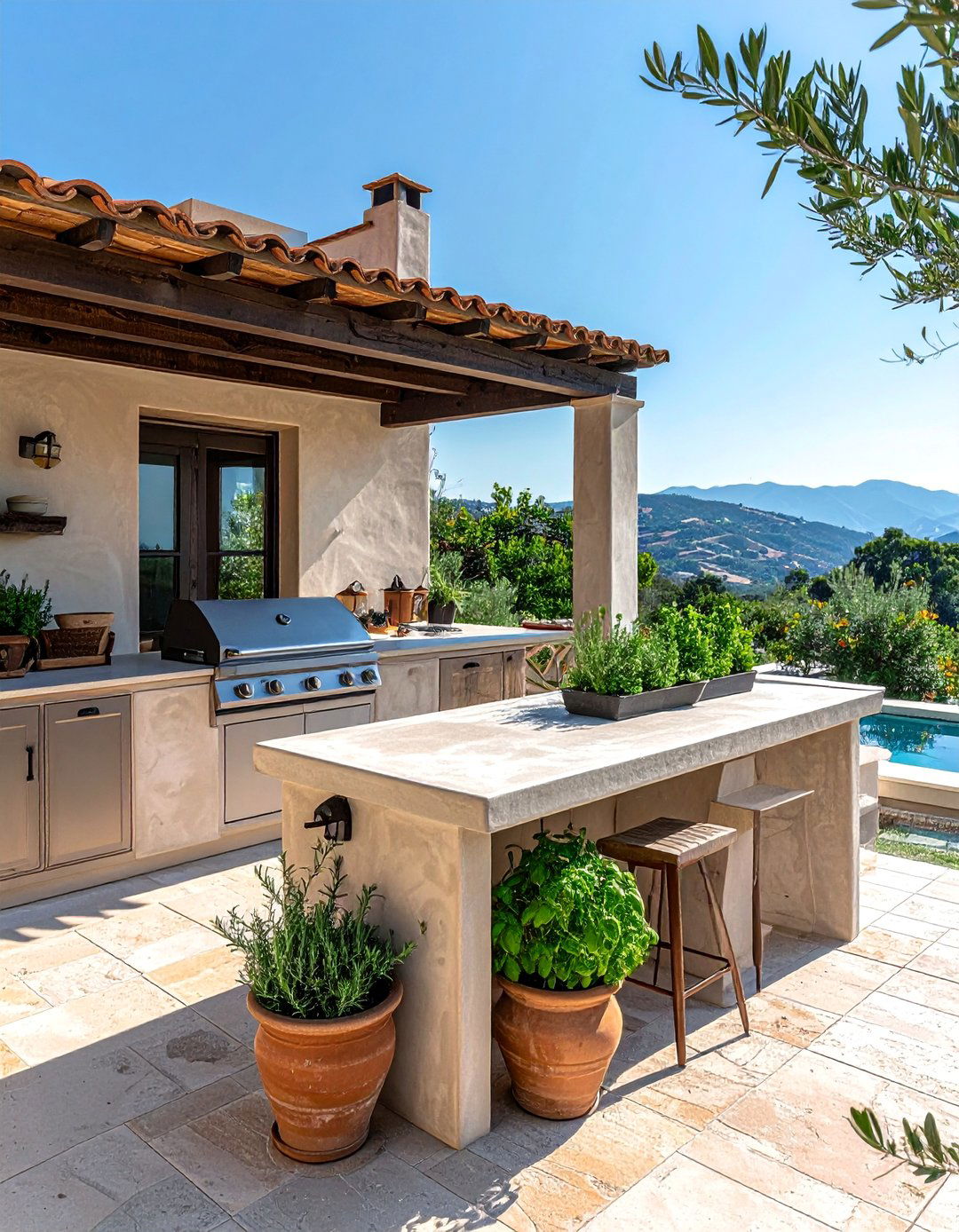
An outdoor kitchen or simple grill area makes a Greek garden a functional space for entertaining. Construct a simple counter from stone or stucco, perhaps with a built-in wood-fired oven for an authentic touch. A space for a barbecue grill, flanked by countertops for food preparation, is a more modern approach. Position this area near the main seating or dining space under a shaded pergola. Growing pots of essential herbs like oregano, basil, and rosemary nearby makes fresh flavorings readily available. This feature extends the home's living space outwards, embracing the Mediterranean culture of al fresco dining and hospitality.
23. A Symmetrical Greek Garden Layout
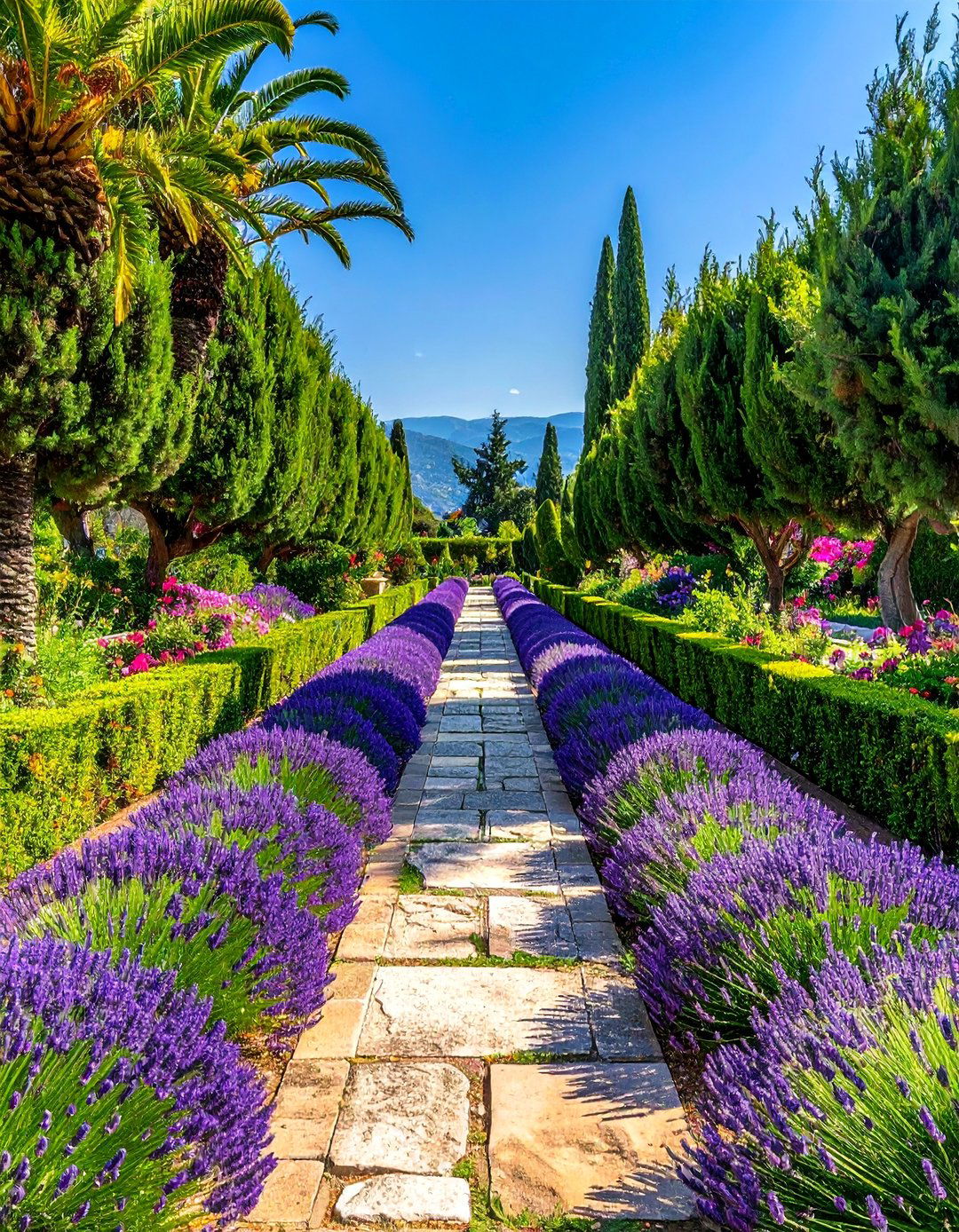
Embracing a symmetrical layout brings a sense of classical order and formal elegance to a Greek garden. This can be achieved by creating a central axis, such as a straight stone pathway, and mirroring the planting beds on either side. Place identical terracotta urns to flank an entryway or position matching stone benches opposite each other. This balanced approach provides a feeling of calm and intention, reflecting the geometric principles found in ancient Greek architecture. While the planting within the beds can remain somewhat informal and rustic, the underlying symmetry provides a strong, pleasing structure to the overall design.
24. A Coastal Greek Garden with Sea Views
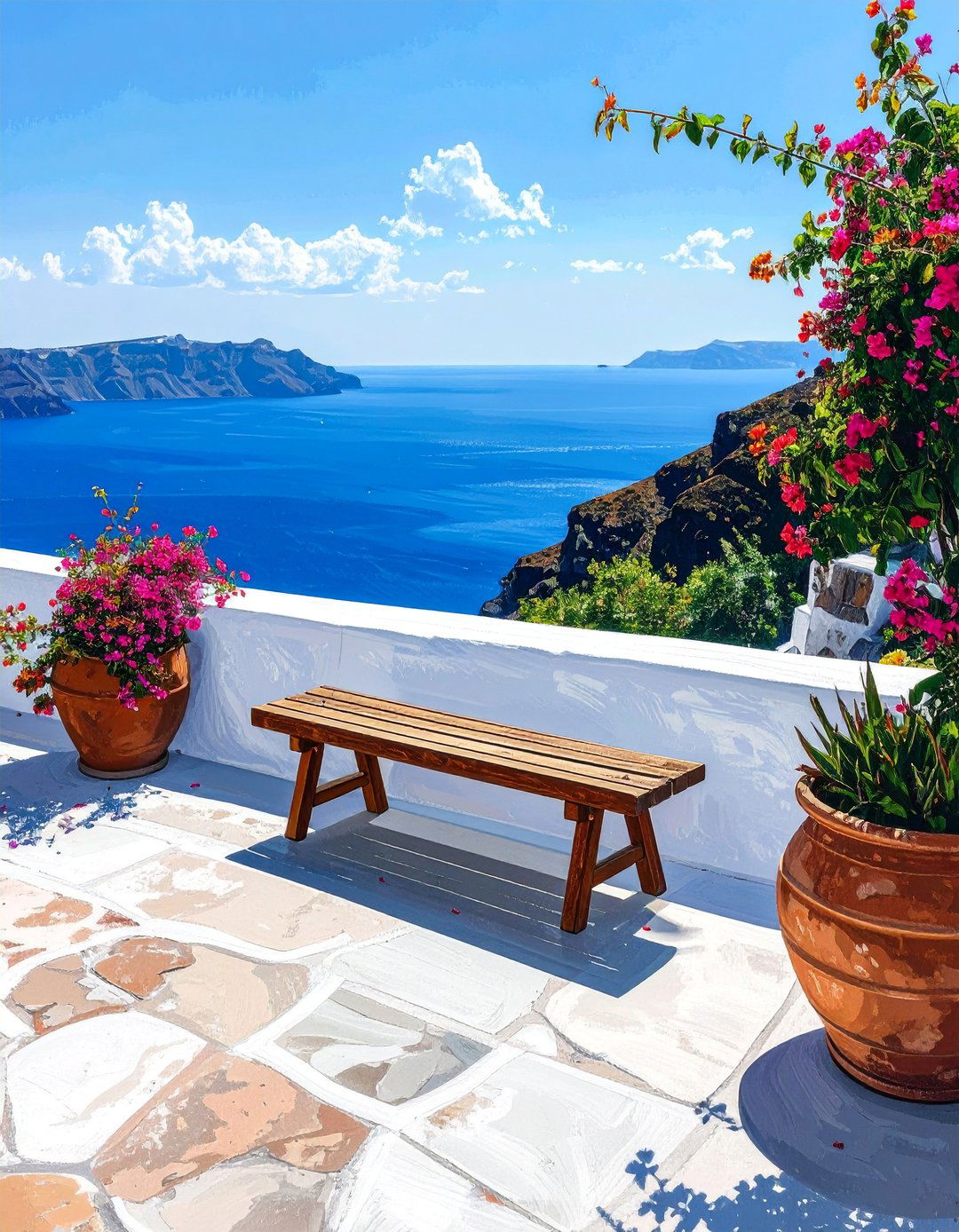
If your location allows, designing a coastal Greek garden that maximizes sea views is the ultimate expression of this style. Use low-growing, wind-tolerant plants like sea lavender and hardy succulents in the foreground to avoid obstructing the vista. A simple, low whitewashed wall can define the garden's edge without interrupting the view of the water. Incorporate a seating area, such as a simple stone bench or a pair of wooden chairs, oriented towards the sea. The expansive blue of the water becomes an integral part of the garden's color palette, creating a seamless connection between your private oasis and the natural landscape.
25. The Inclusion of a Fig Tree
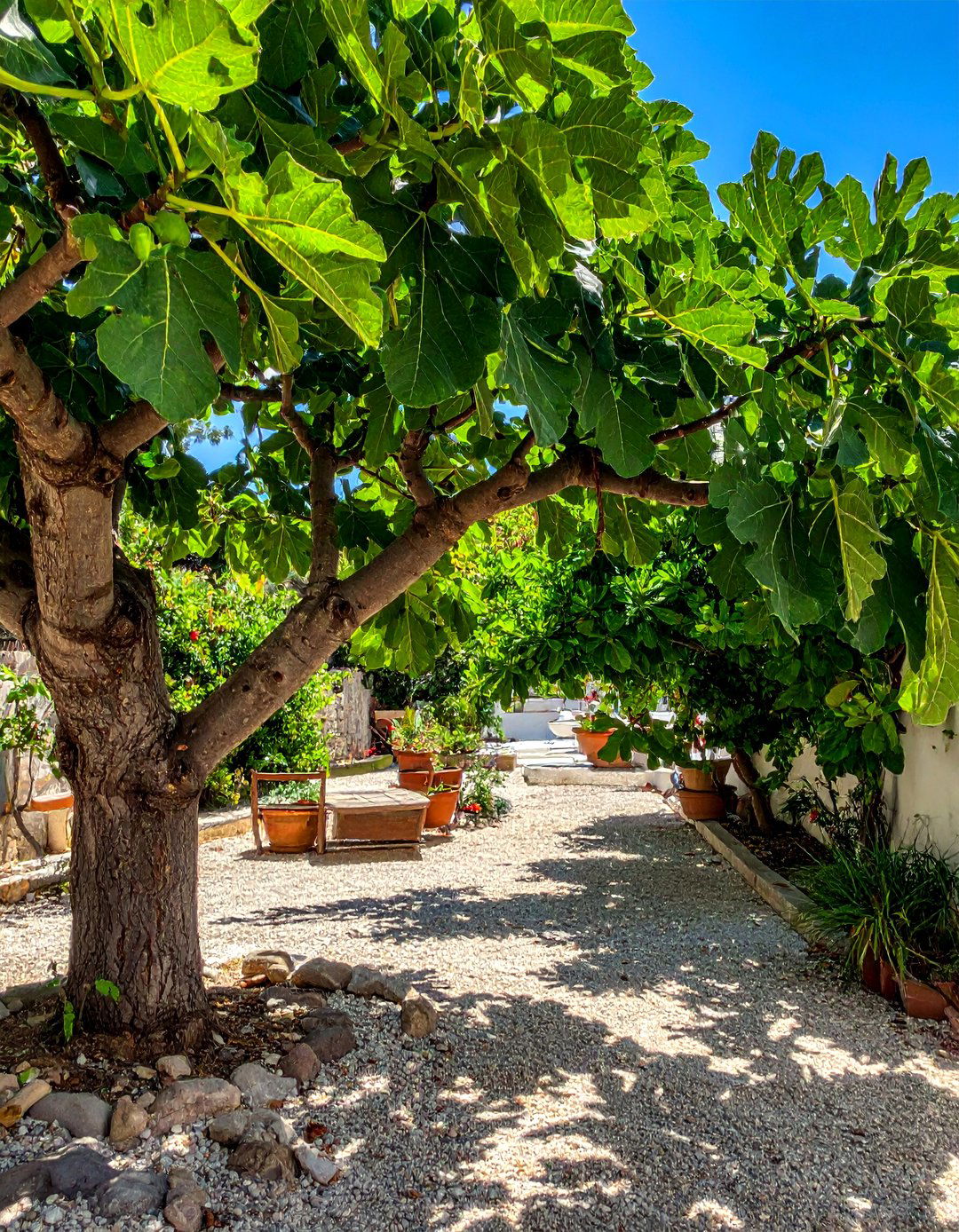
Planting a fig tree in a Greek garden adds another layer of authentic Mediterranean flavor and edible abundance. With its large, uniquely lobed leaves, a fig tree provides dense shade and a bold, tropical texture. Plant it in a sunny, protected spot where it has room to grow, or choose a dwarf variety suitable for a large container. The sweet, delicious fruit is a summertime treat that connects the garden directly to the culinary traditions of Greece. Its distinctive silhouette and lush foliage make it a beautiful specimen tree that contributes both aesthetically and productively to the garden's overall character.
26. Tall Cypress Trees for Vertical Accents
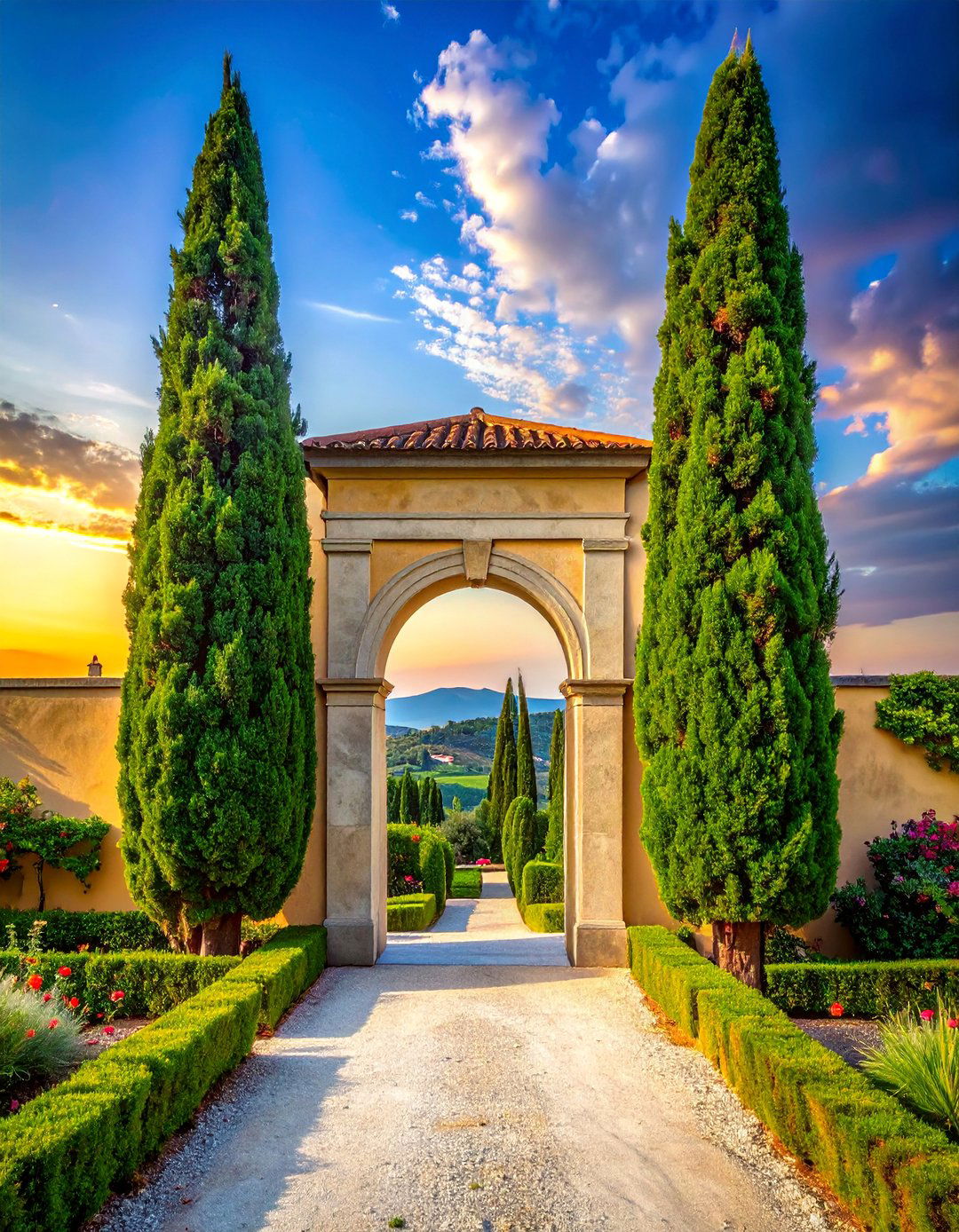
Planting tall, slender Italian Cypress trees provides dramatic verticality and a formal, architectural element within a Greek garden. These iconic, deep green columns create a strong contrast against low-growing shrubs and whitewashed walls, drawing the eye upward and adding a sense of grandeur. Use them to frame an entrance, line a long pathway, or mark the corners of a courtyard to add structure and a touch of formal Italianate elegance that complements the Greek aesthetic. Their slim profile allows them to add height and drama without casting excessive shade, maintaining the bright, sunny atmosphere of the garden.
27. Soft Night Lighting with Lanterns
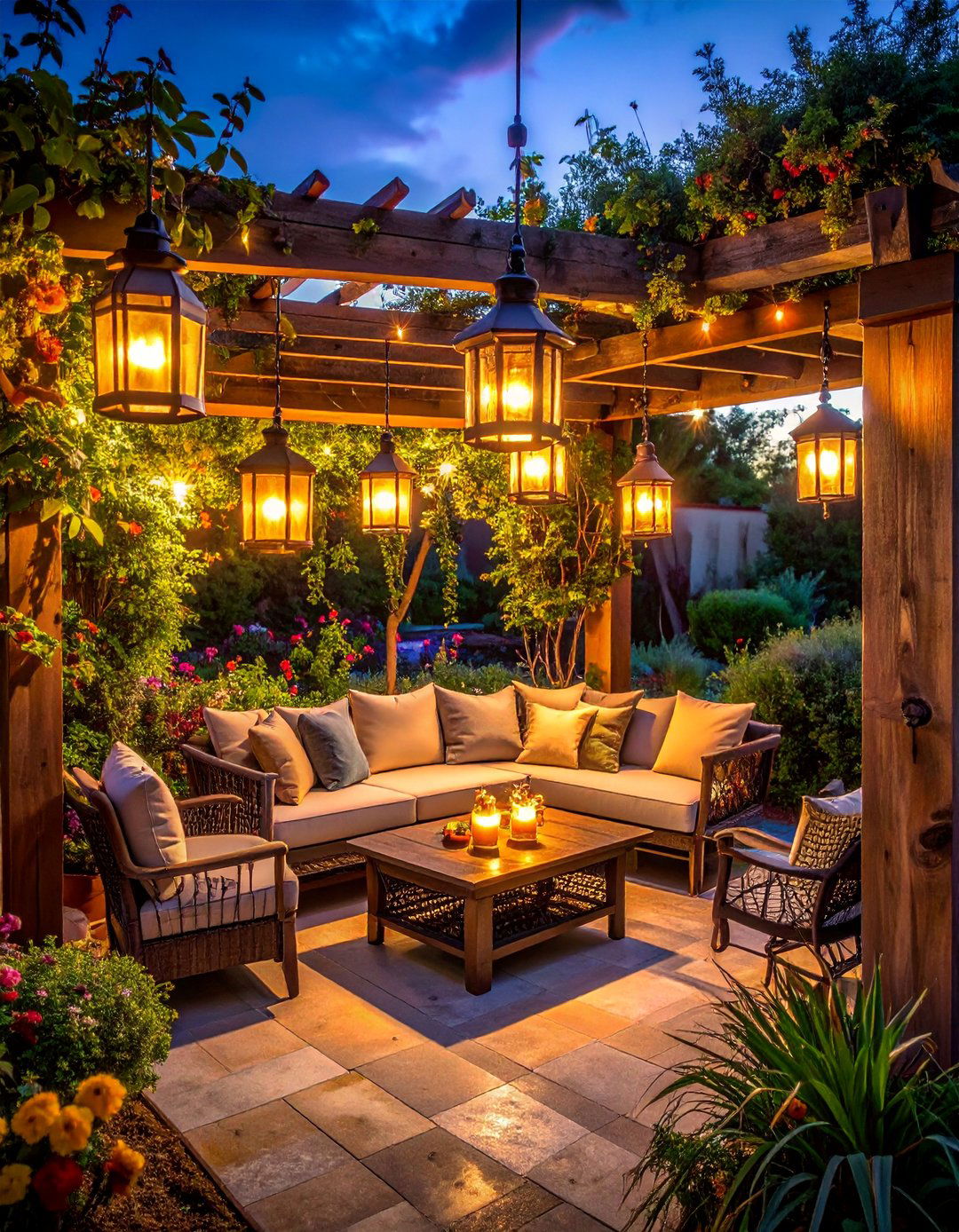
Using soft, ambient night lighting from rustic lanterns enhances the magical atmosphere of a Greek garden after dusk. Hang simple iron or punched-tin lanterns from pergola beams, place them on steps, or set them within wall niches. Opt for warm, low-wattage bulbs or candles to create a gentle, flickering glow that invites evening relaxation. This subtle illumination highlights key features like a gnarled olive tree trunk, a classical statue, or the texture of a stone wall without overwhelming the tranquil mood. This approach extends the usability of the garden into the evening for intimate gatherings or quiet contemplation.
28. A Secluded Seating Nook
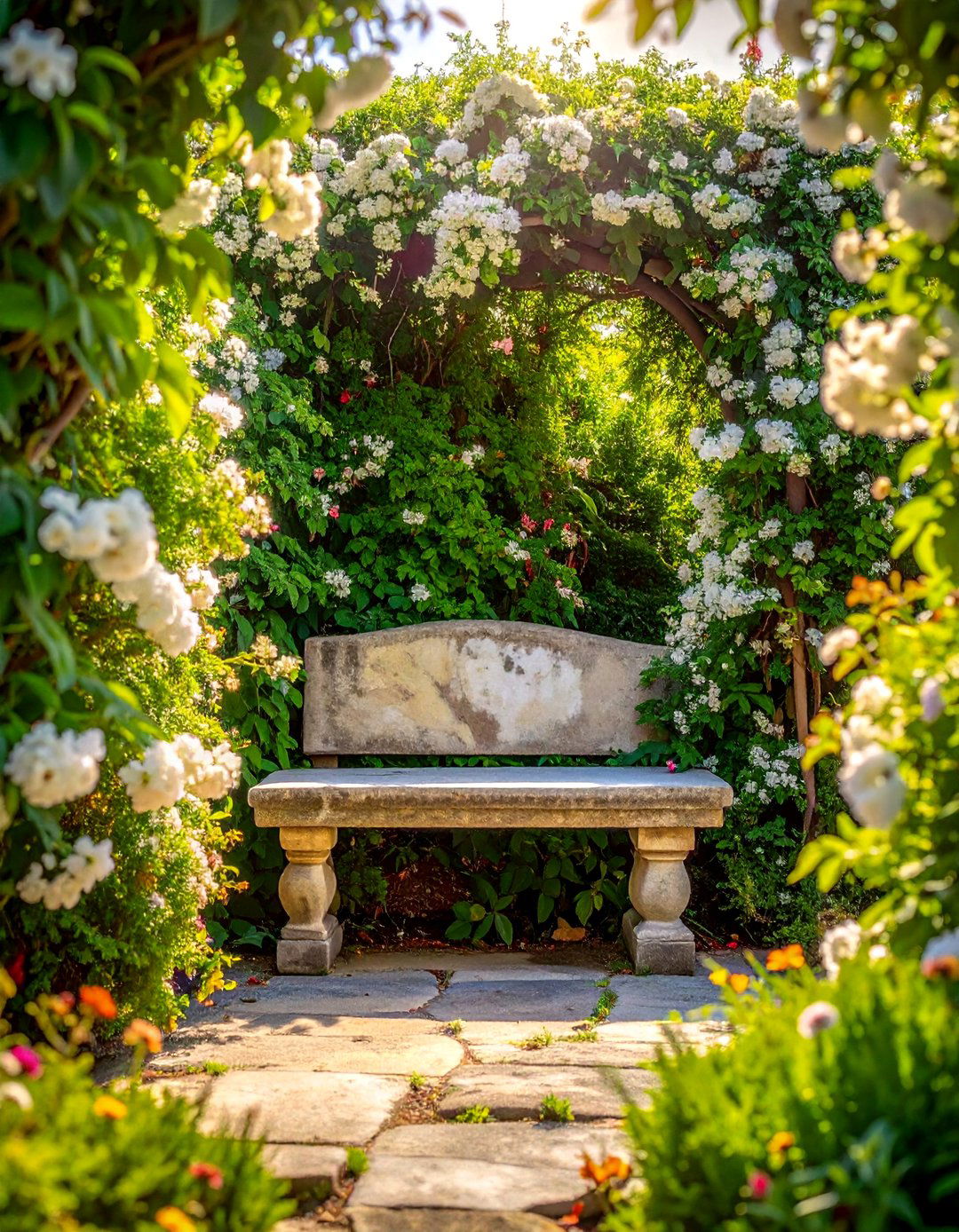
Creating a small, secluded seating nook offers a quiet corner for escape within your Greek garden. Tucked away behind a screen of climbing jasmine or nestled under the boughs of a mature fig tree, this intimate space can be as simple as a single stone bench or a pair of rustic wooden chairs. Surround the nook with fragrant plants like lavender or lemon verbena to enhance the sensory experience. This hidden spot provides a destination point within the garden, a private sanctuary for reading, sipping a cool drink, or simply enjoying a moment of peaceful solitude away from the main entertaining areas.
29. The Abundant Use of Natural Stone
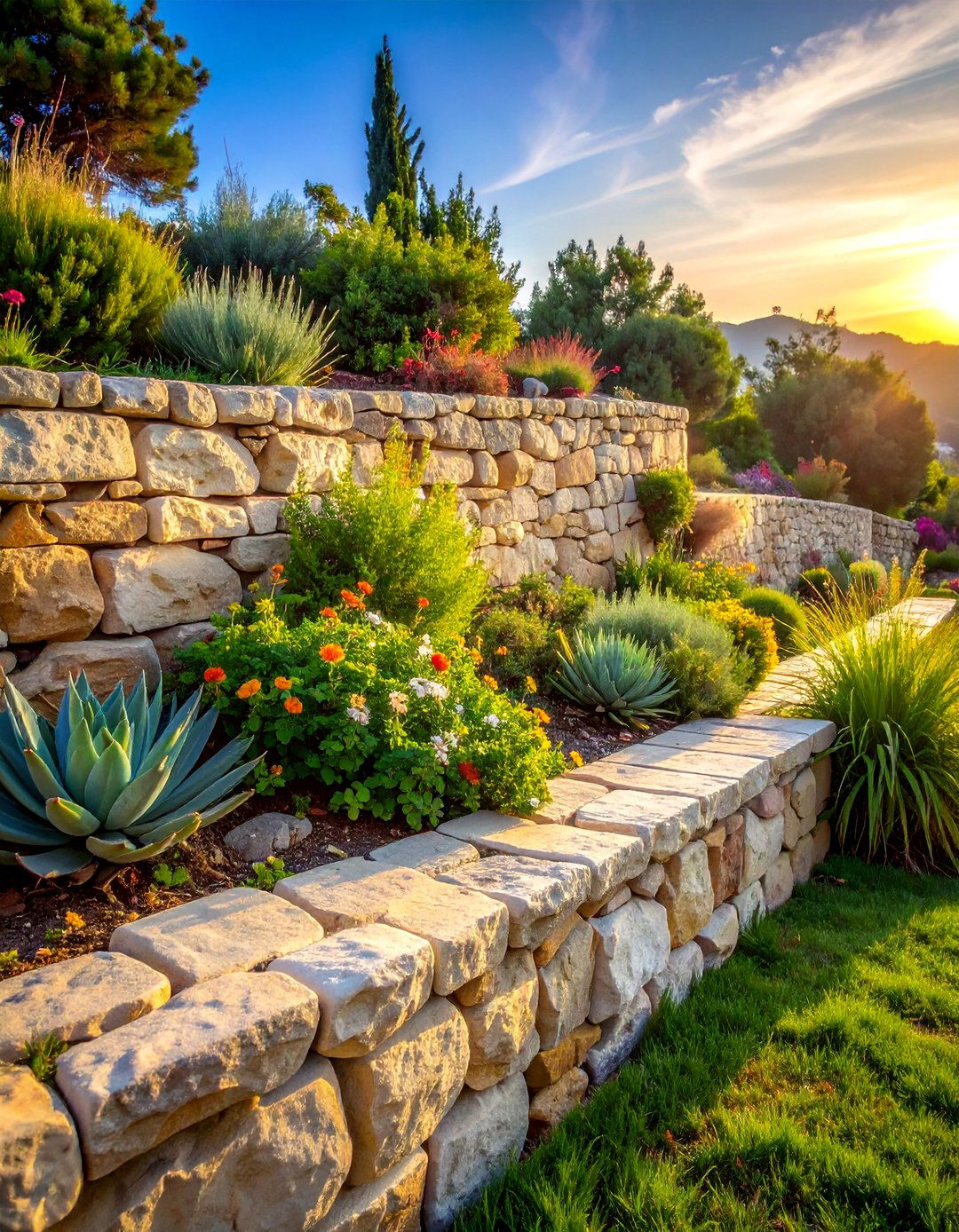
Natural stone is the foundational material that lends authenticity and timelessness to a Greek garden. Beyond just pathways and raised beds, use it extensively for low retaining walls, staircases, and patio flooring. Choose a light-colored stone like limestone or sandstone that complements the sun-bleached aesthetic. The rough, organic texture of the stone provides a beautiful contrast to the smooth finish of whitewashed walls and the soft foliage of plants. This heavy reliance on natural, locally-sourced materials grounds the garden in its environment, creating a space that feels enduring, solid, and effortlessly connected to the earth.
30. Dynamic Potted Plant Groupings
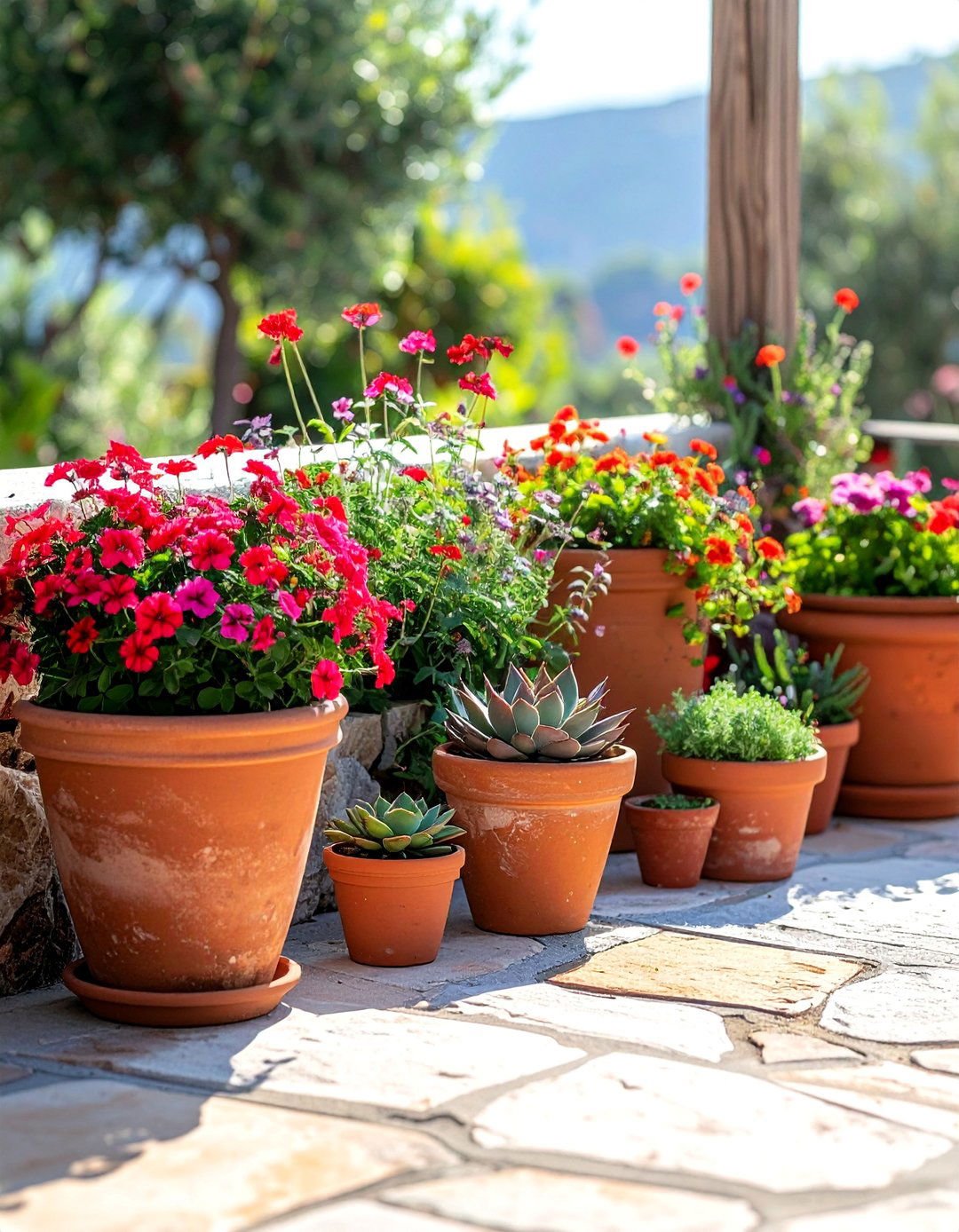
Arranging dynamic groupings of potted plants is key to adding life and flexibility to a Greek garden patio or courtyard. Mix and match terracotta pots of various sizes, shapes, and stages of weathering to create visual interest. Combine plants with different textures and forms, such as the spiky foliage of an agave, the soft mounds of herbs, and the trailing vines of ivy geraniums. This layered approach allows you to easily change the look of your space, move plants according to seasonal sun exposure, and bring tender species to a protected spot in winter, ensuring a vibrant and evolving display.
Conclusion:
Creating a Greek garden is about capturing a feeling of sun-drenched simplicity and timeless beauty. By combining core elements like whitewashed walls, terracotta pots, and iconic Mediterranean plants such as olive trees, lavender, and bougainvillea, you can design a serene oasis. The focus on natural materials like stone and wood, paired with a simple color palette of white, blue, and earthy tones, results in a space that is both visually stunning and deeply relaxing. This approach crafts a low-maintenance, drought-tolerant sanctuary perfect for enjoying the simple pleasures of outdoor living.

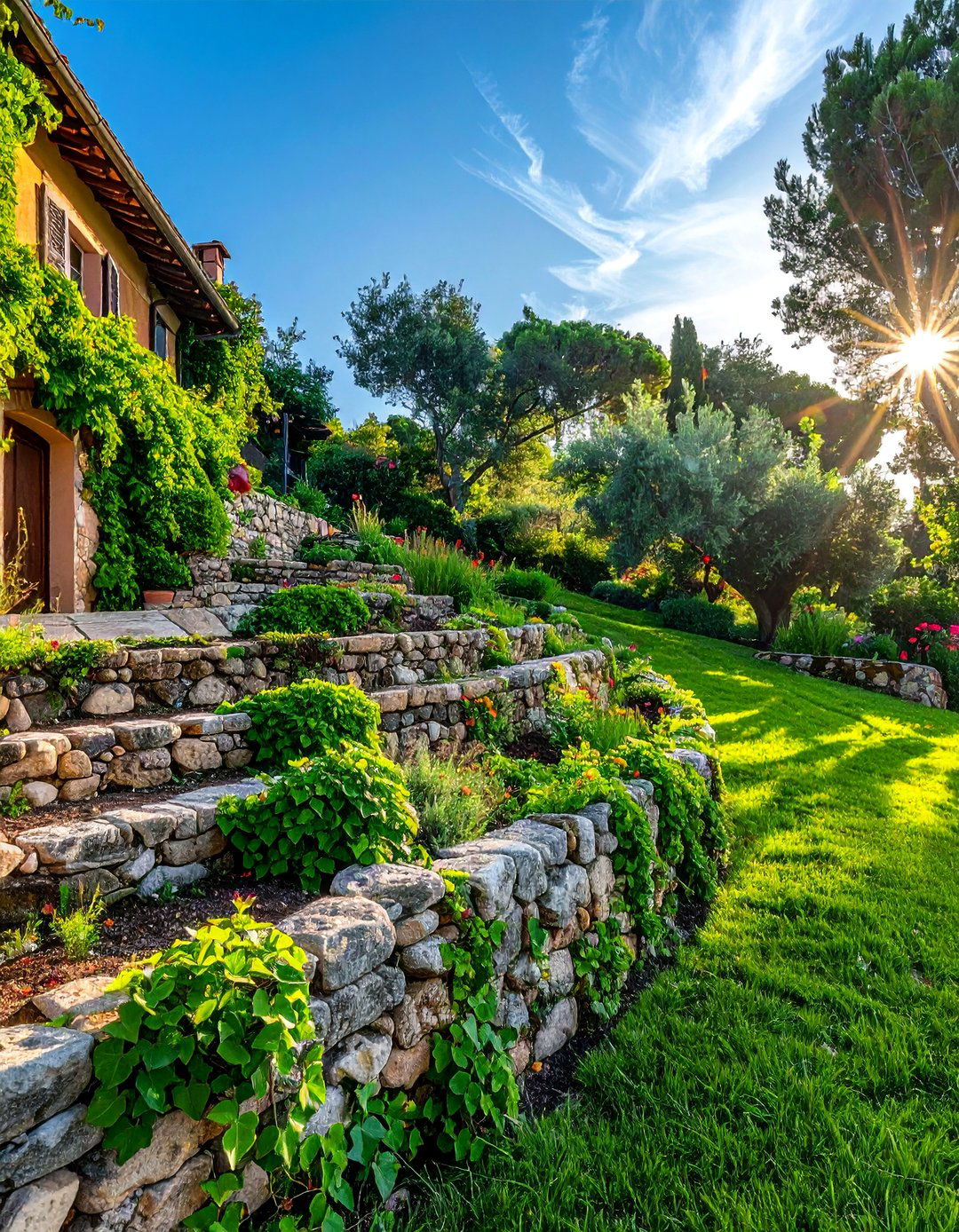

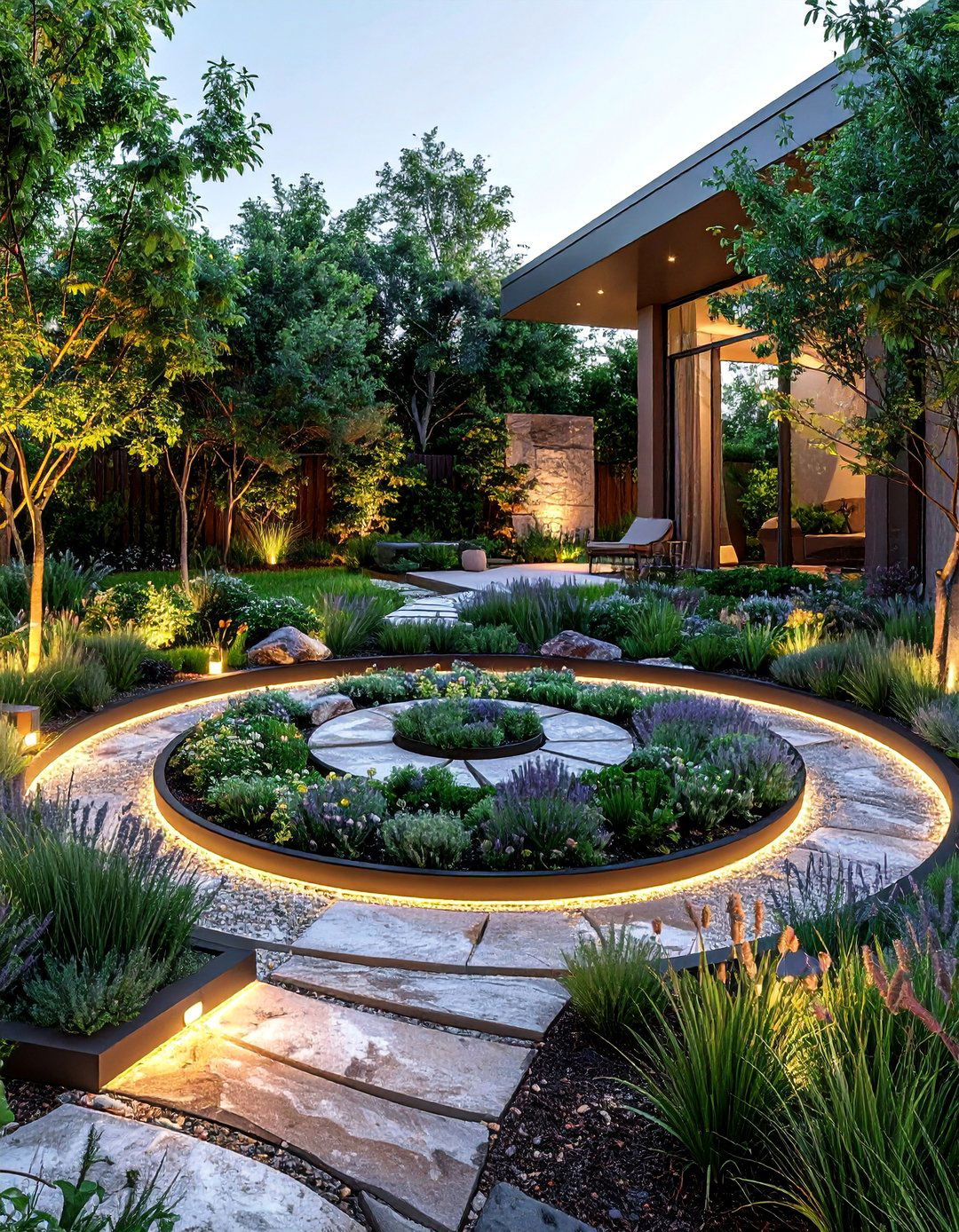
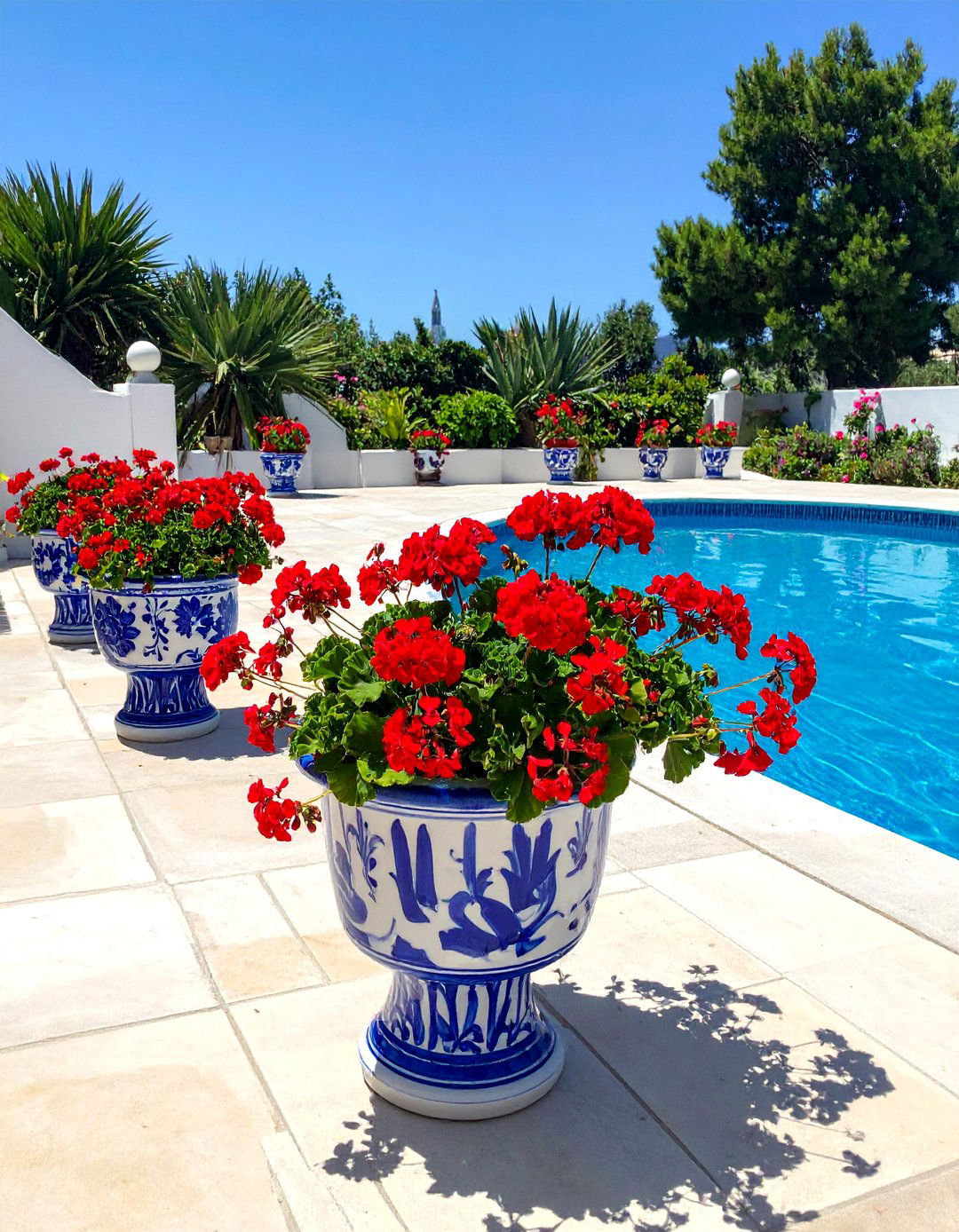
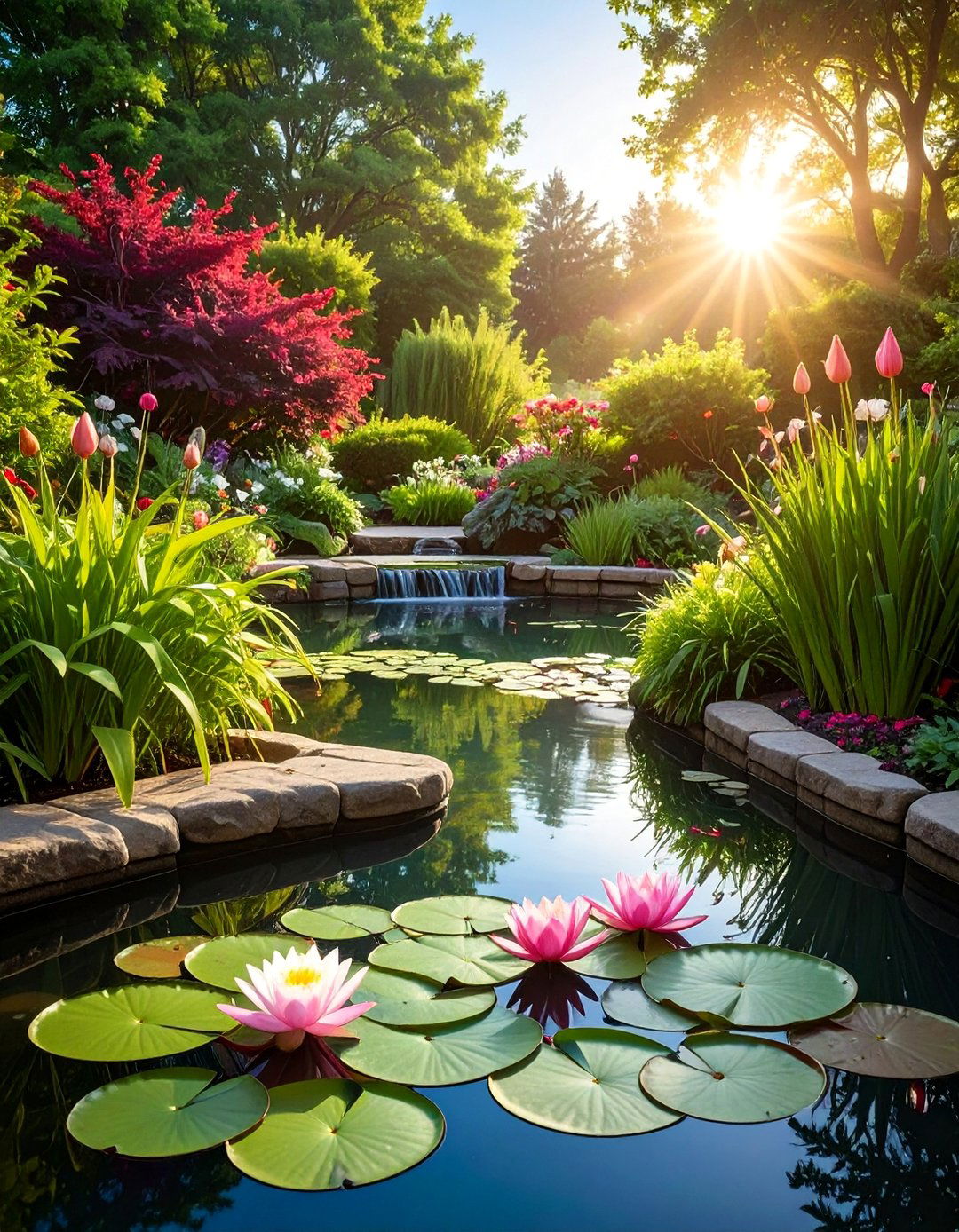

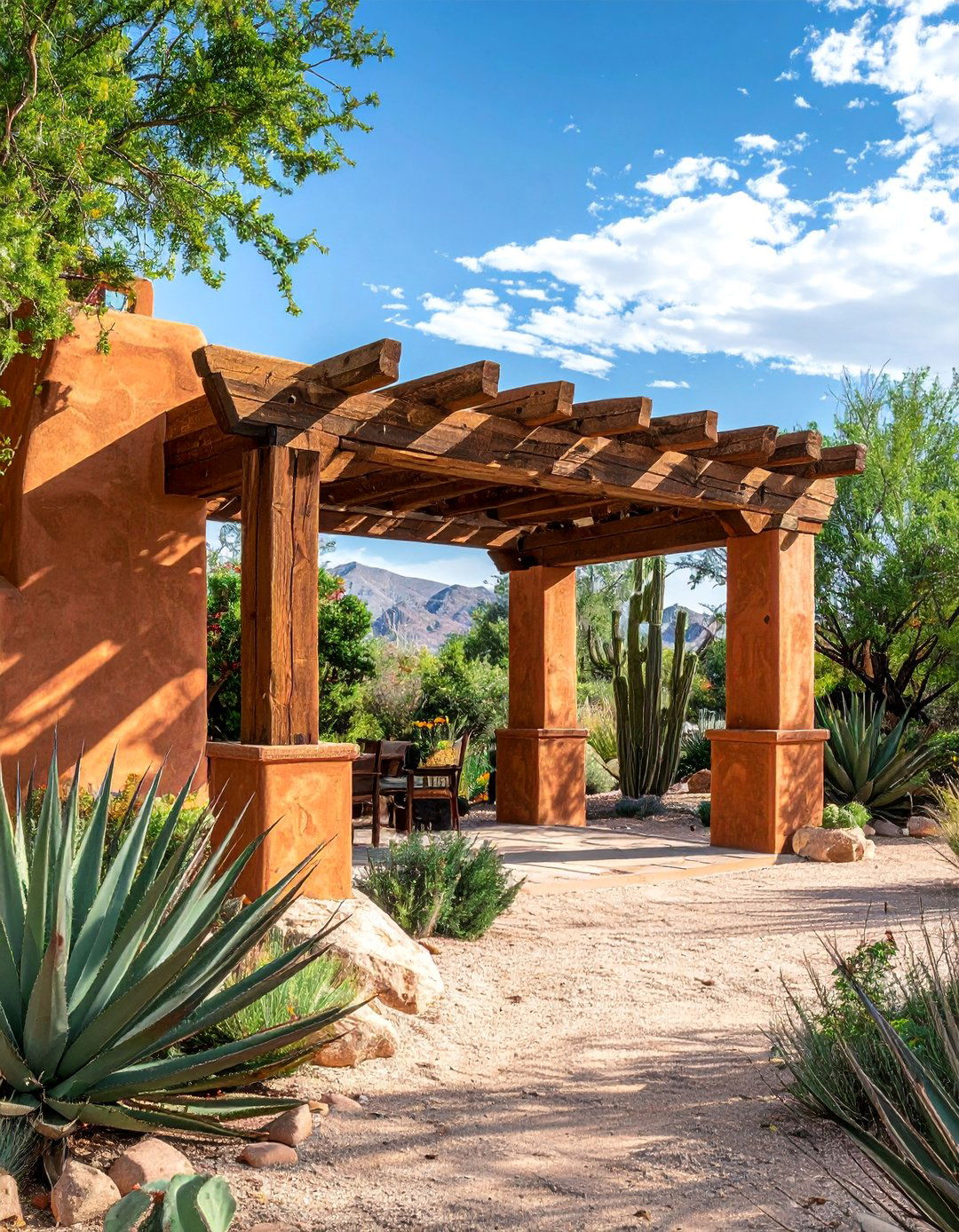
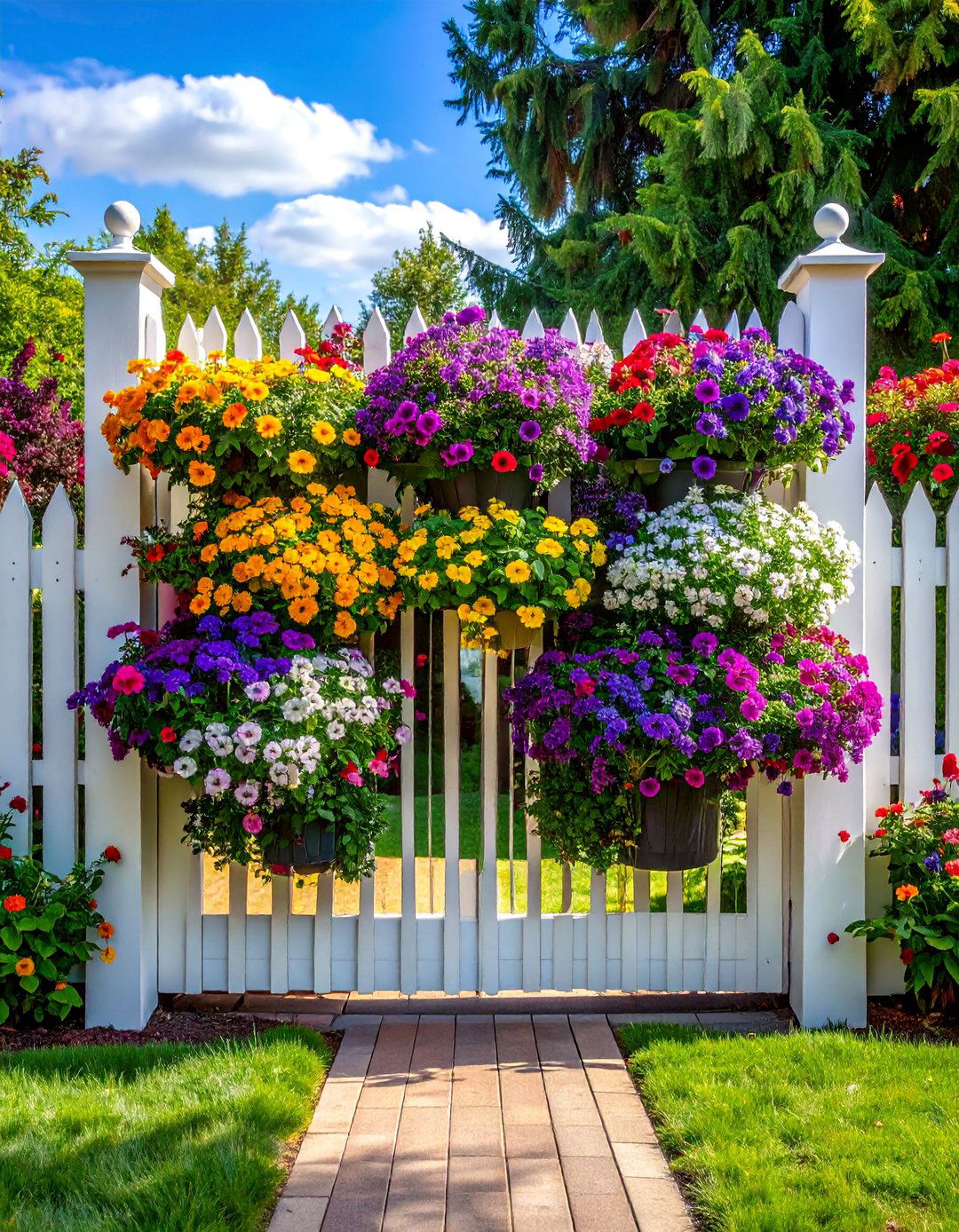
Leave a Reply